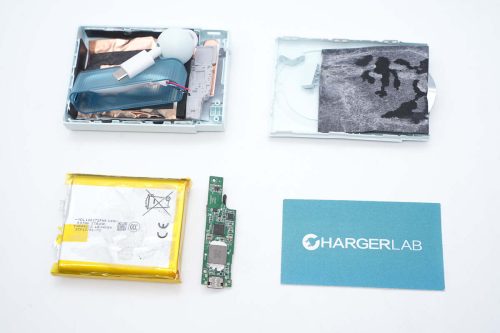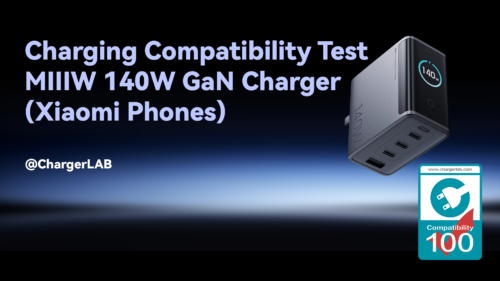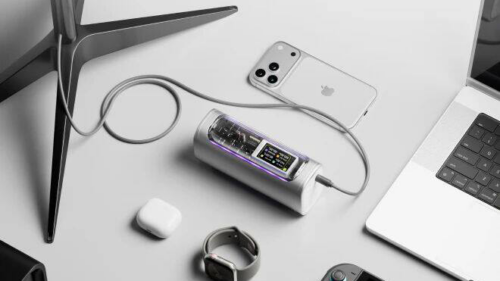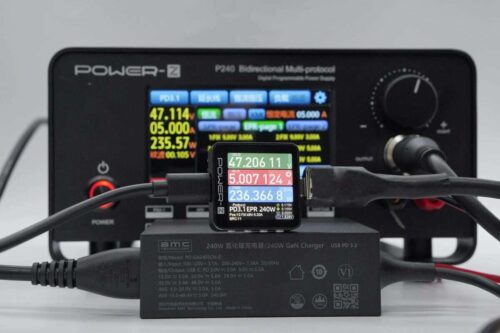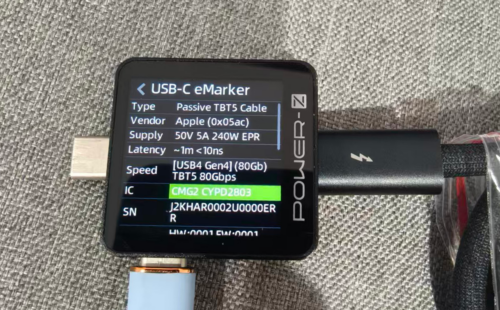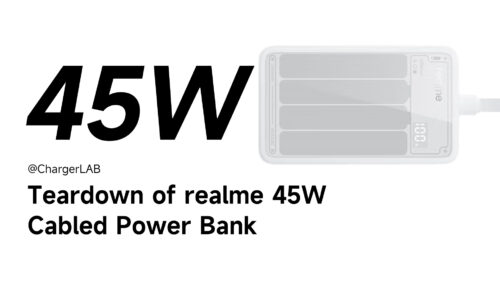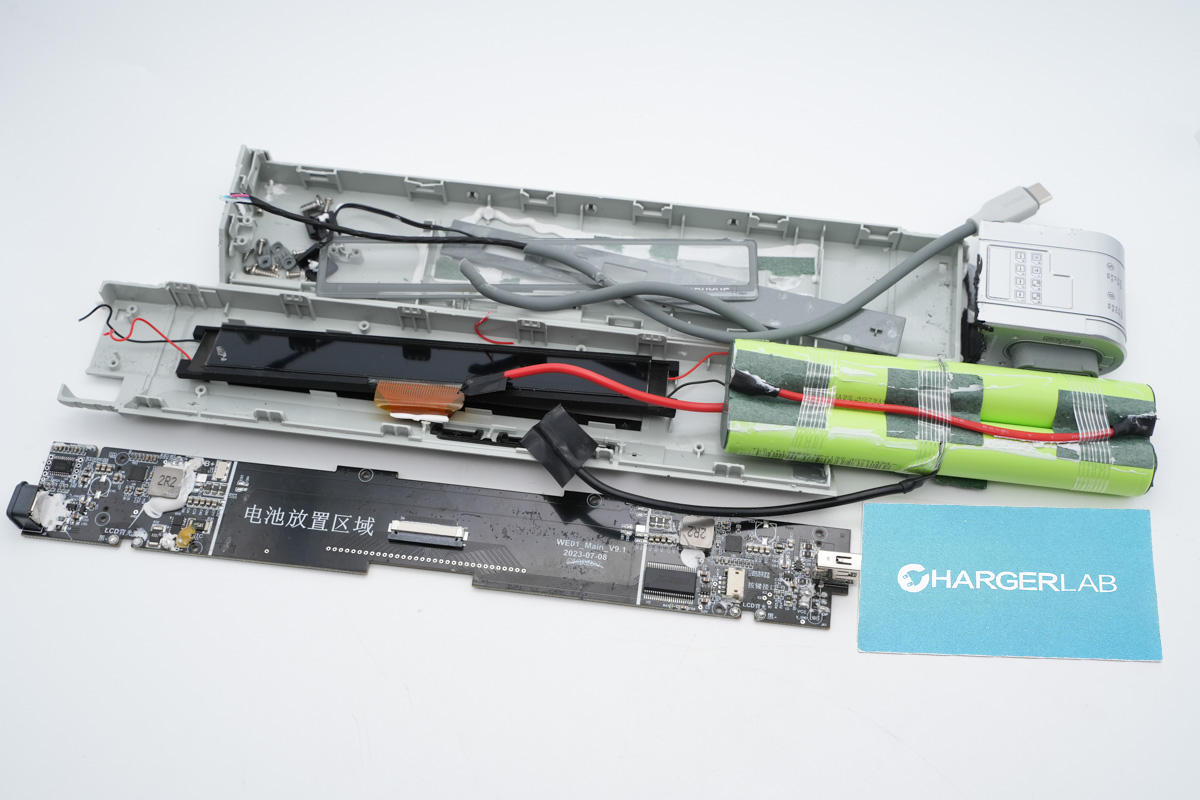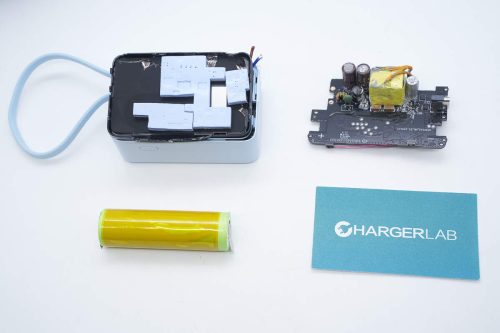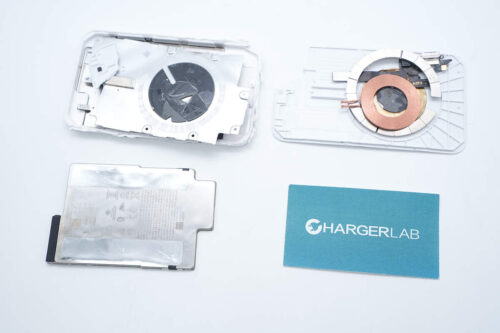Introduction
OPPO has launched a new "Energy Jelly" fast-charging power bank, featuring a built-in USB-C cable and a compact design. Despite housing a 10,000 mAh battery, the device remains highly portable—perfect for daily outings without the need to carry extra cables. Its capacity is enough to support a full day of use while shopping or exploring the city.
In addition to the built-in cable, the power bank features an extra USB-C fast-charging port, enabling simultaneous charging of up to two devices, making it ideal for sharing with a friend on the go.
In terms of performance, it supports up to 18 W input and 22.5 W output, offering efficient recharging whether you're charging the power bank itself or your smartphone. Next, let’s take it apart to see its internal components and structure.
Product Appearance
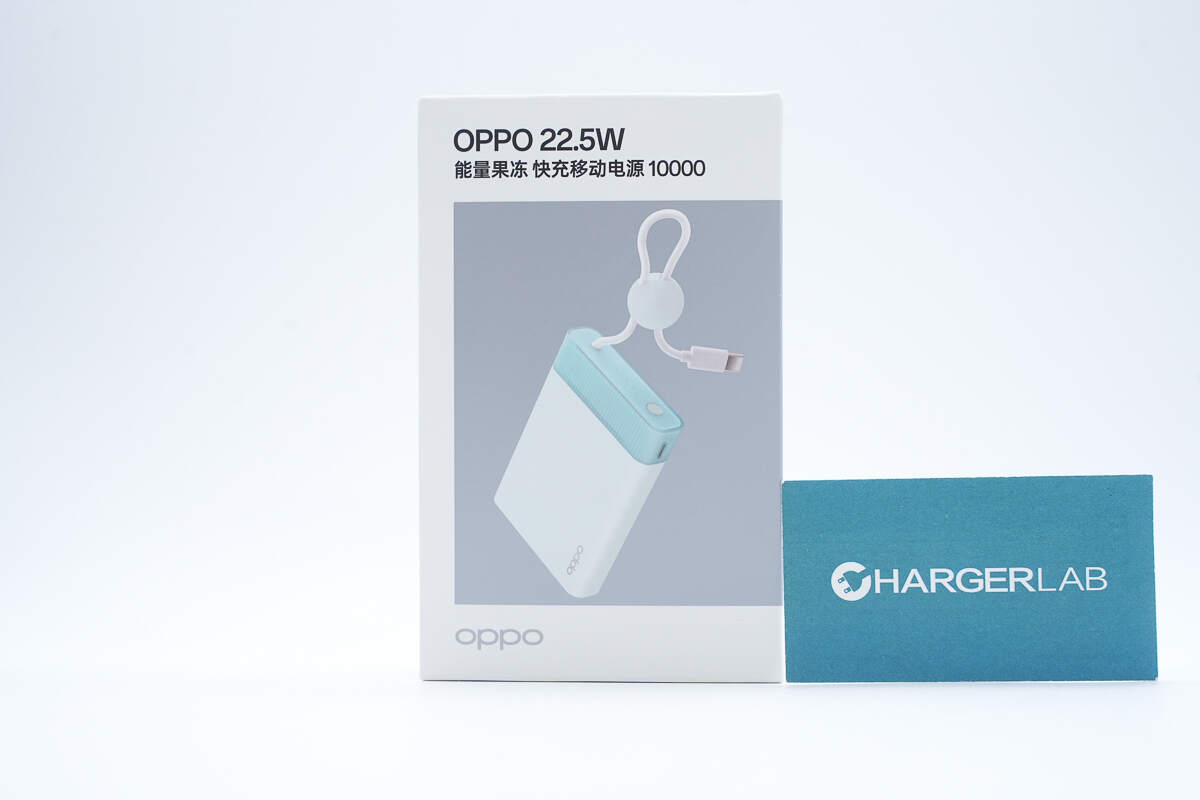
The front of the packaging features the OPPO logo, the product name, and an image of the power bank.
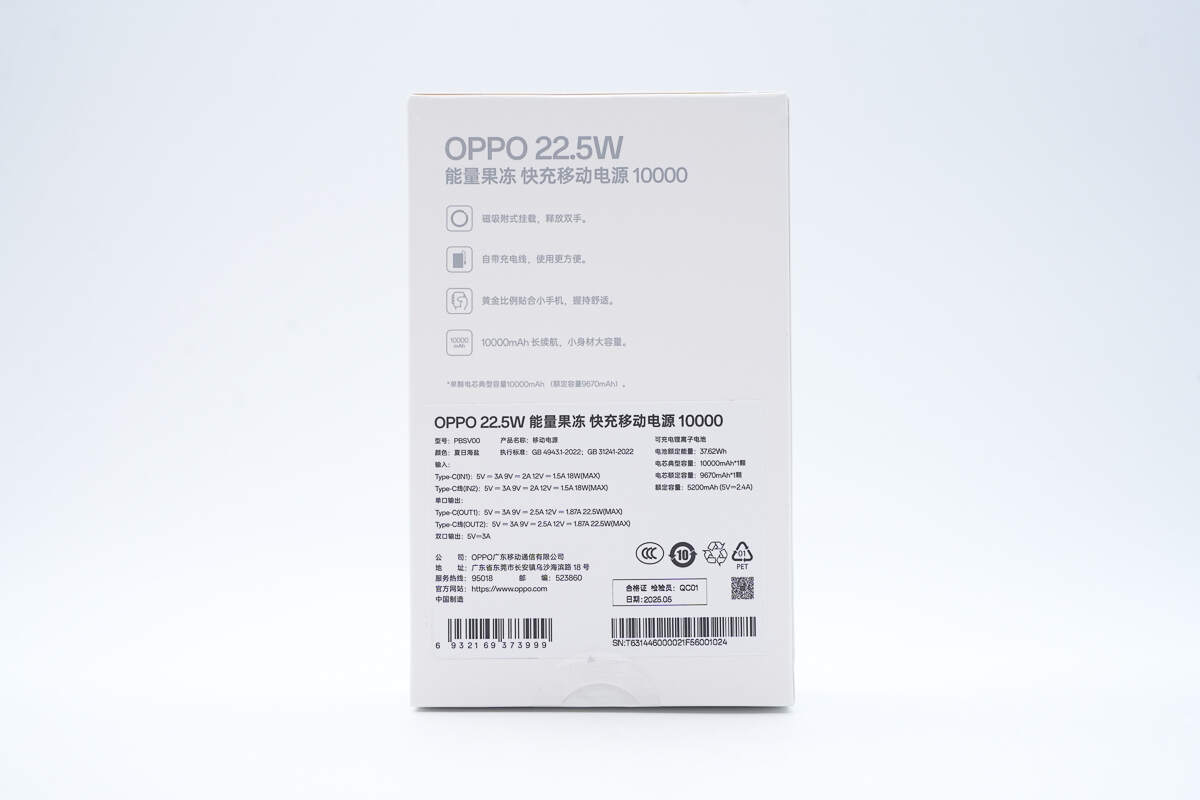
The back of the packaging highlights key selling points and includes a sticker with the product specifications.
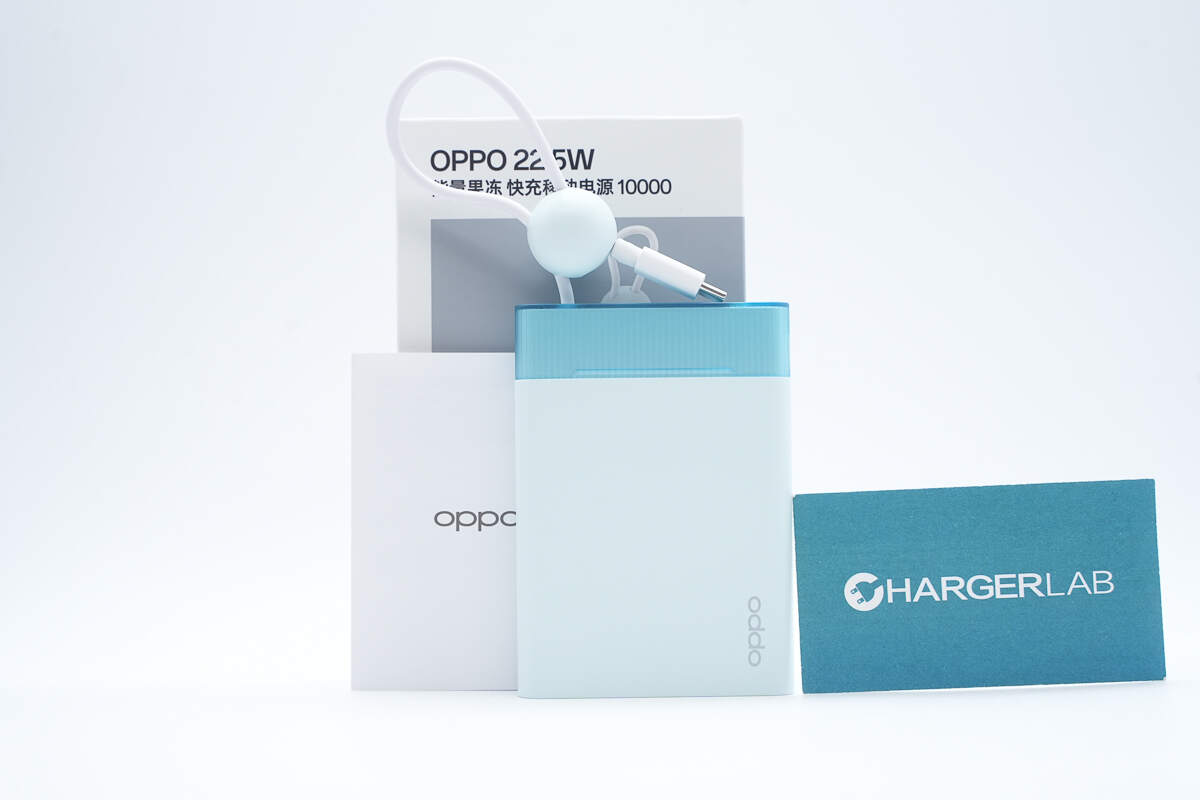
The package includes the power bank and some documents.
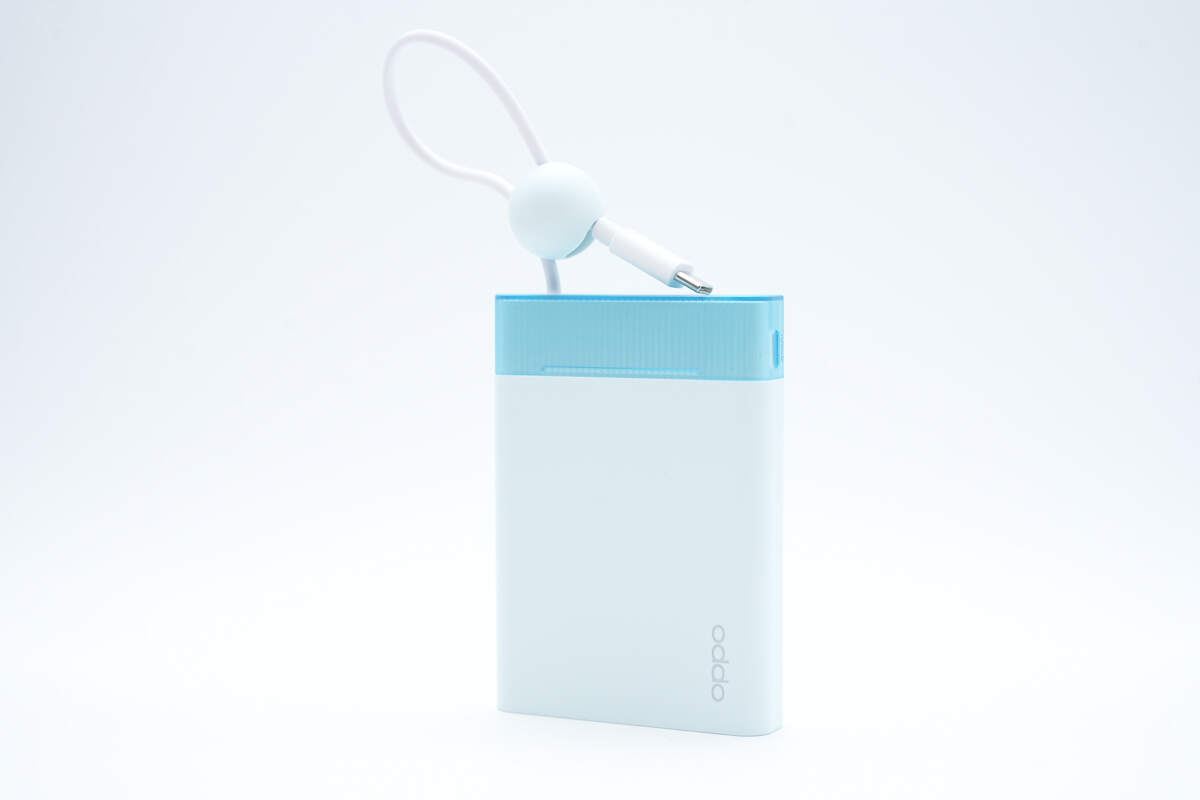
The power bank comes in blue and features a compact, slim design.

It includes a built-in USB-C cable with a storage ball for easy winding, eliminating the need to carry an extra cable during daily outings.
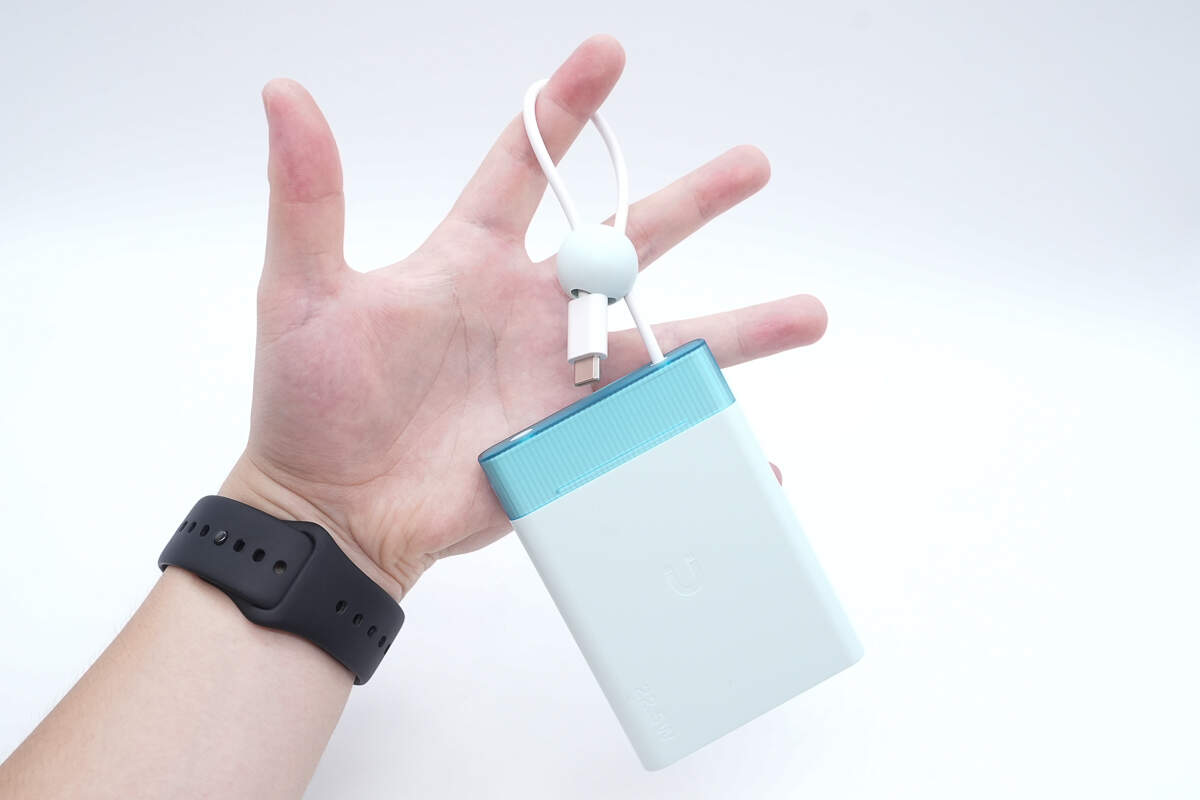
The built-in cable can also be used as a carrying strap.
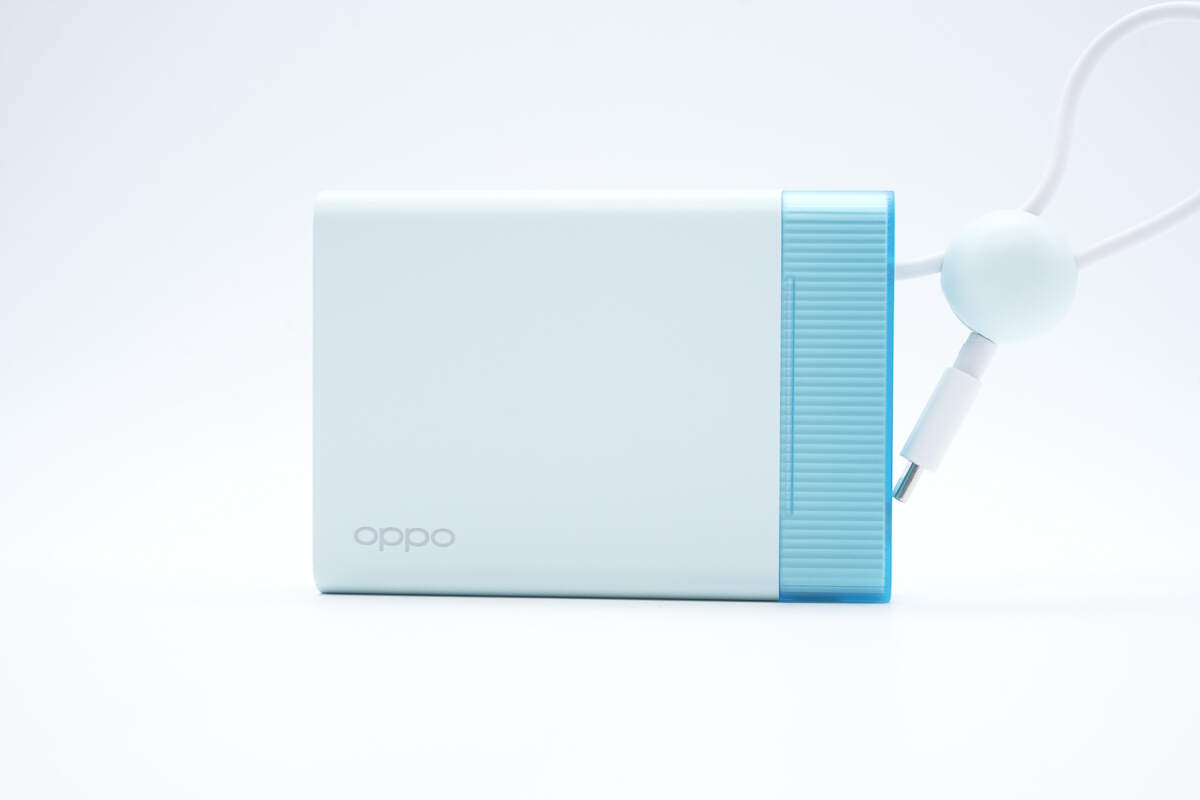
The OPPO logo is printed on the lower left corner of the front side.
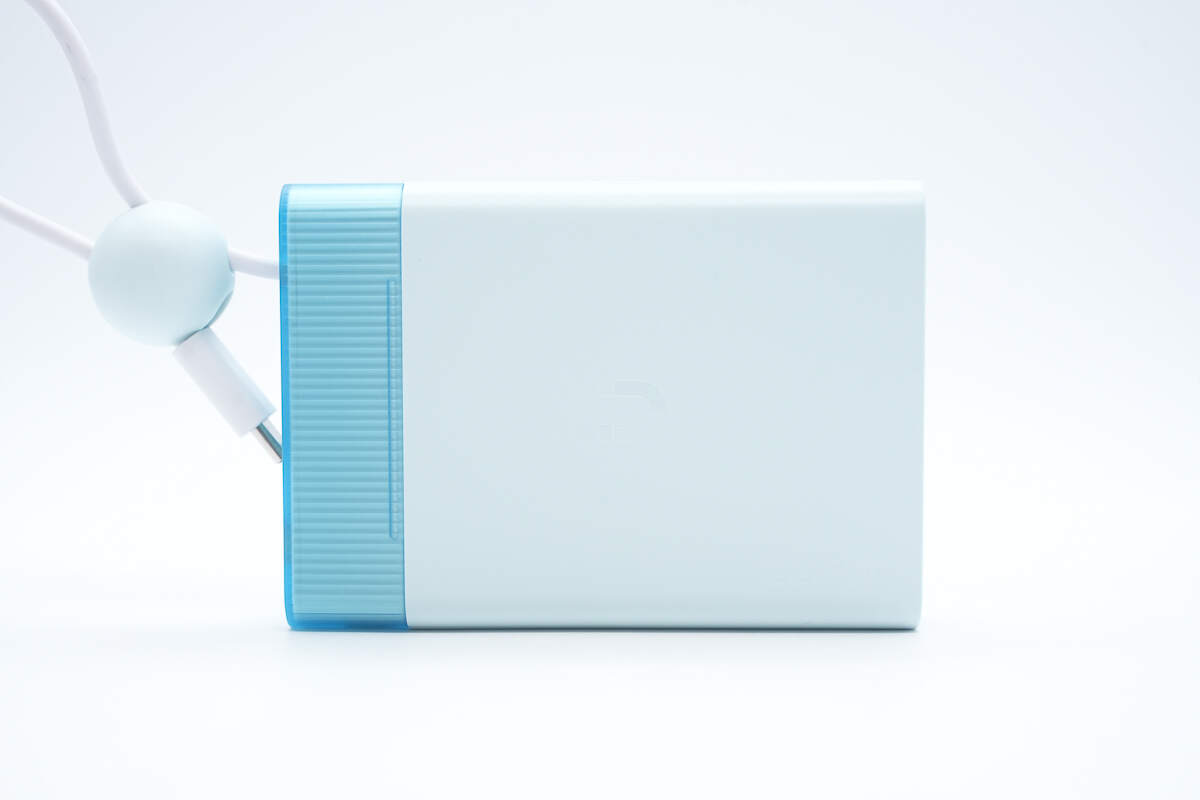
The back features a magnetic attachment function but does not support wireless charging.
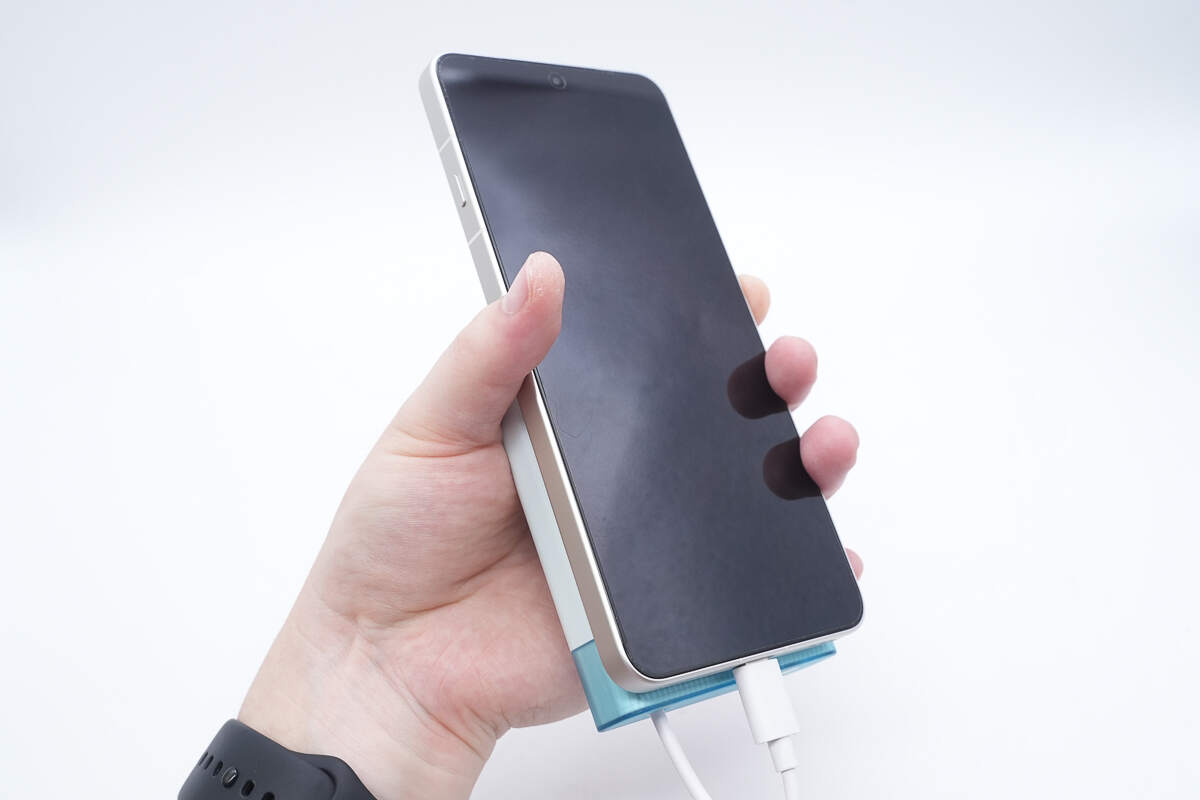
When charging your phone, you don’t need to hold it tightly for the connection to stay secure.
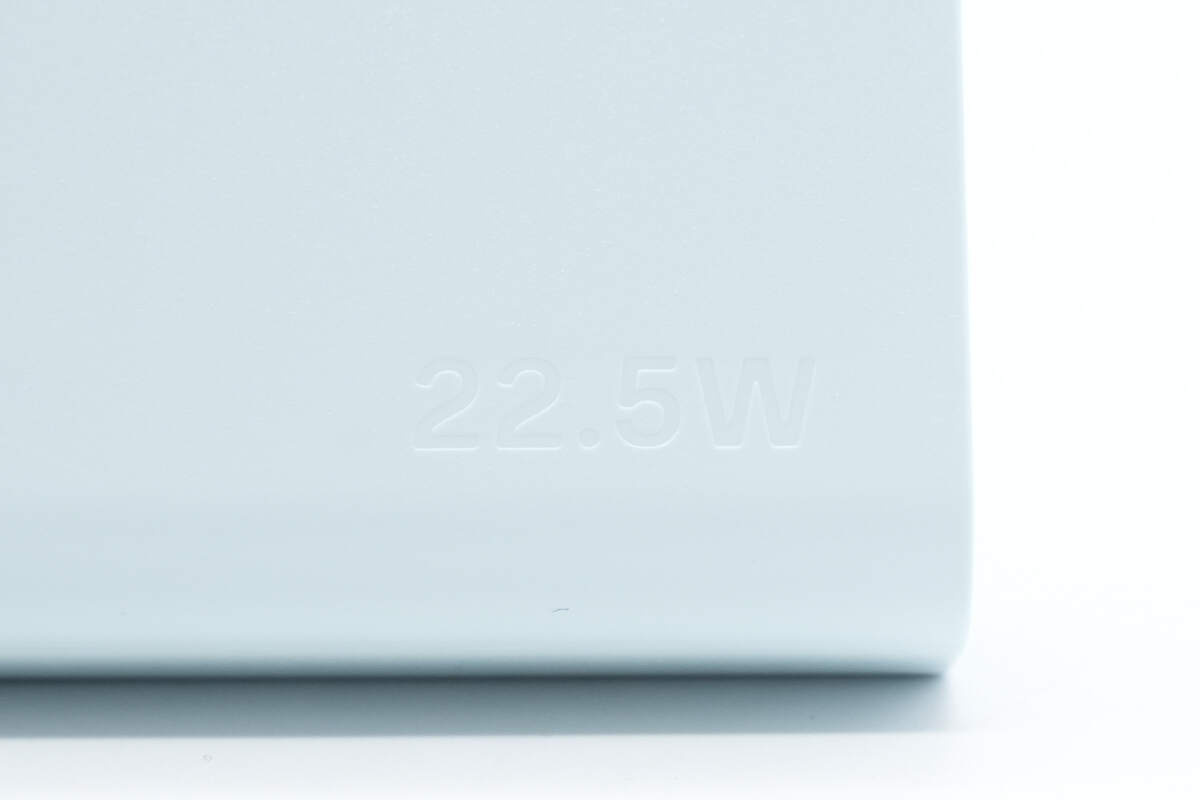
The corner of the device is marked with "22.5W."
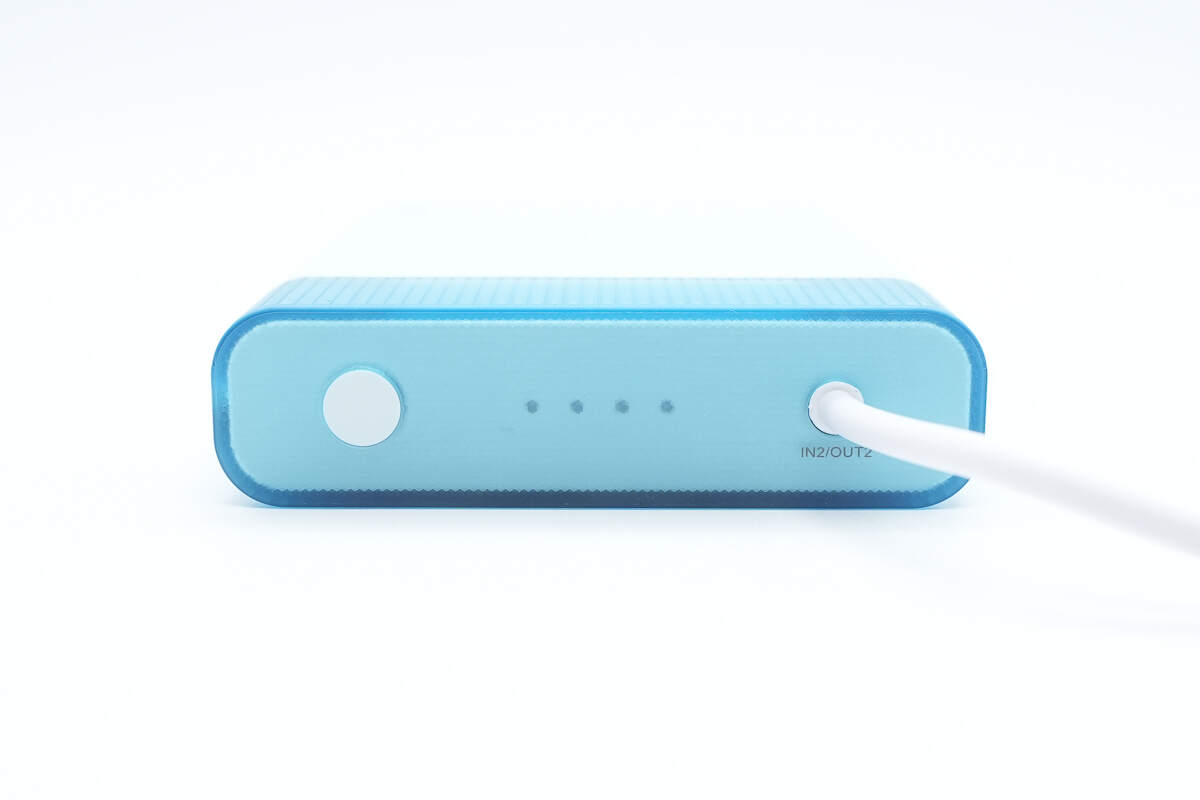
The top is equipped with a power button and battery indicator lights.
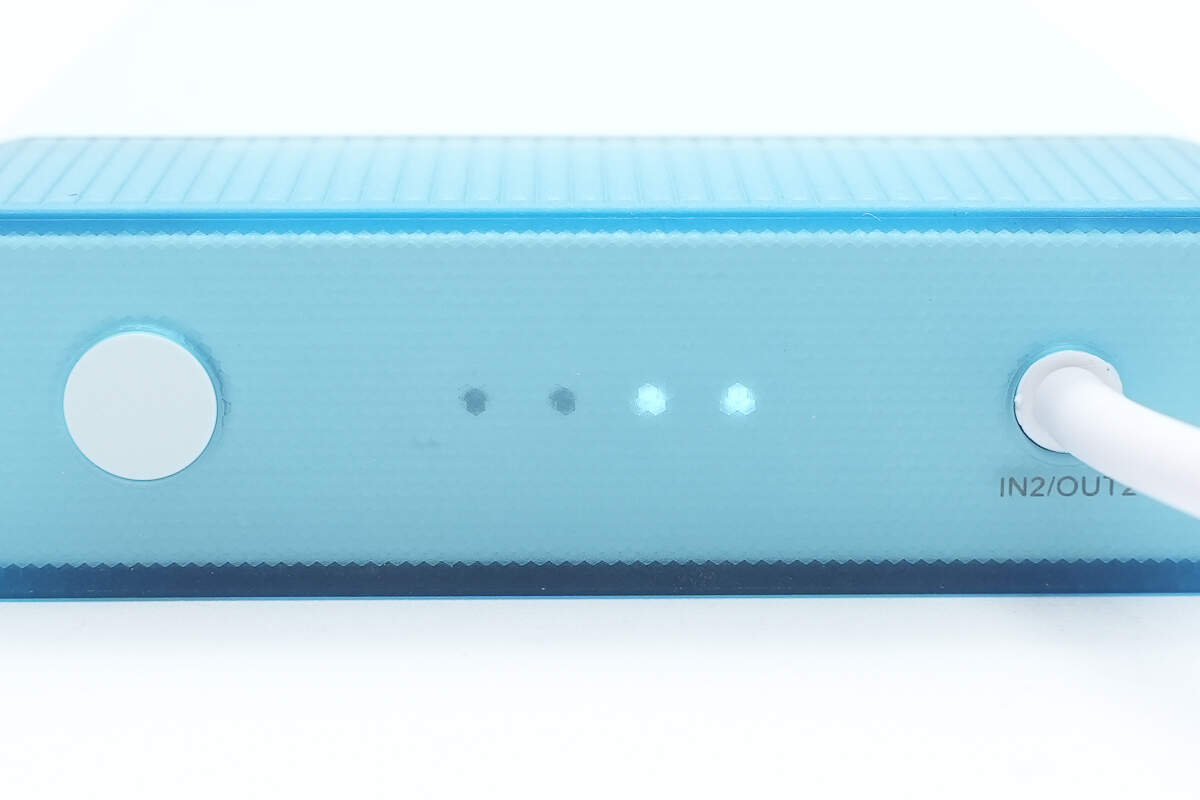
There are four indicator lights in total, with each light representing 25% of the battery capacity.
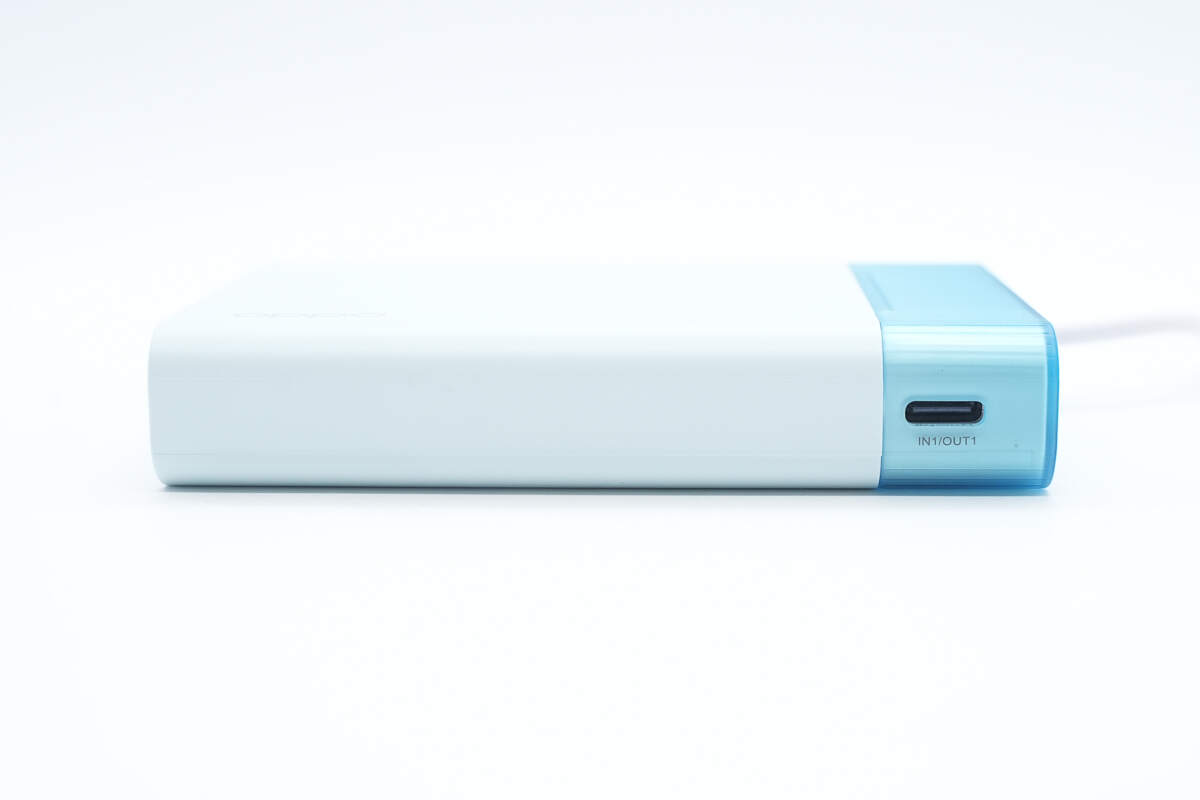
There is a USB-C bidirectional fast-charging port on the side.
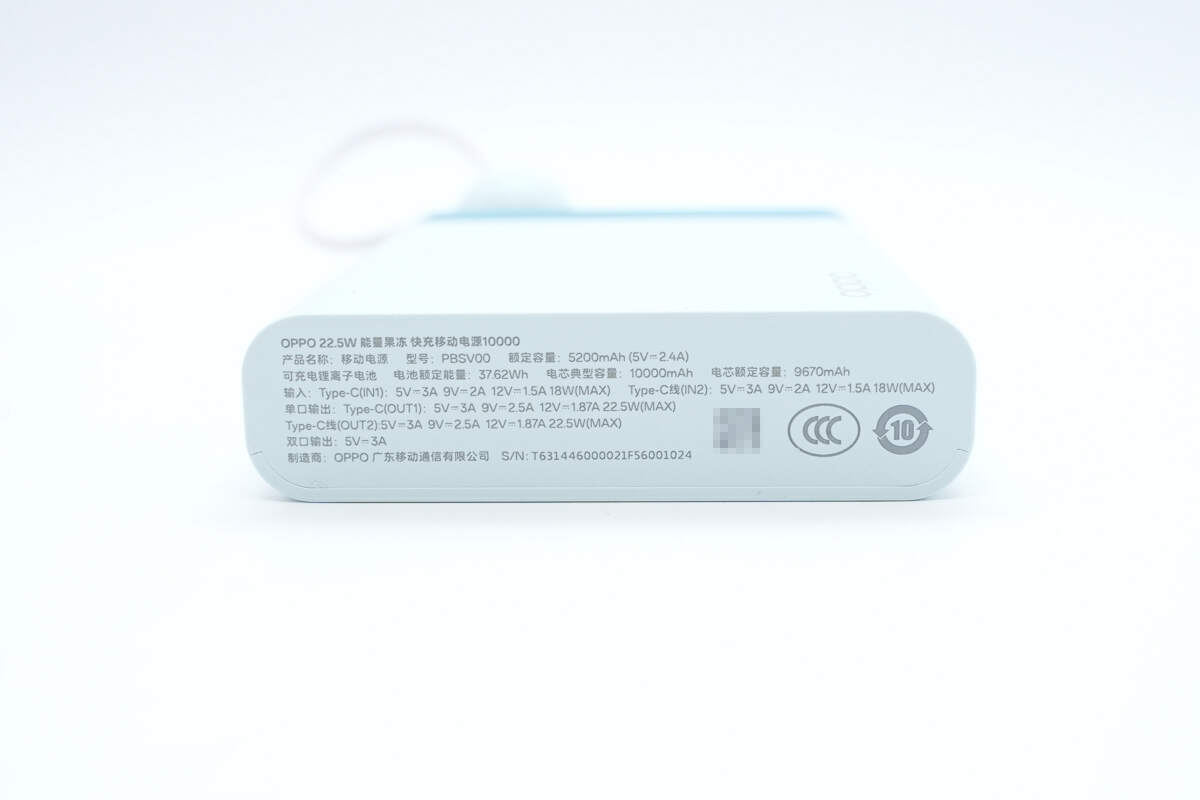
The bottom of the casing is printed with the product specifications.
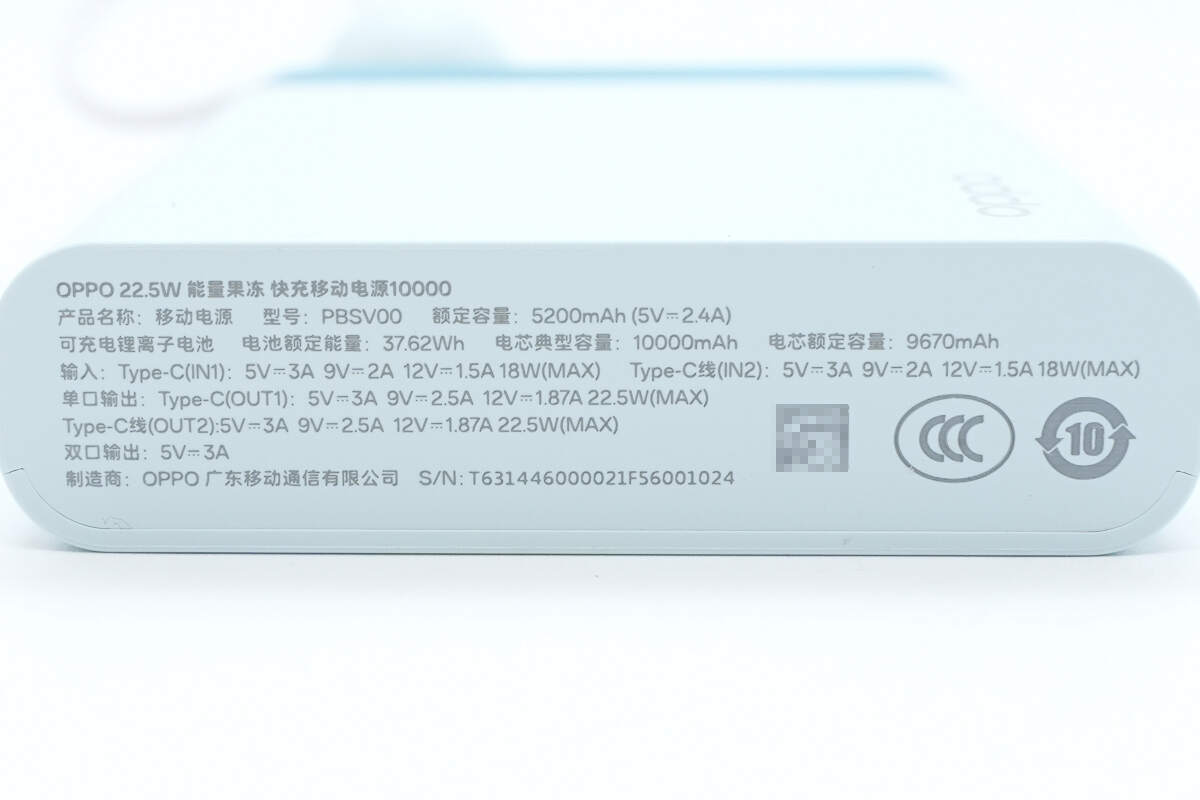
Model: PBSV00
Rated Capacity: 5200mAh (5V 2.4A)
Battery Type: Rechargeable Lithium-ion Battery
Rated Energy: 37.62Wh
Typical Cell Capacity: 10000mAh
Rated Cell Capacity: 9670mAh
Input:
Type-C (IN1): 5V 3A, 9V 2A, 12V 1.5A, 18W MAX
Type-C (IN2): 5V 3A, 9V 2A, 12V 1.5A, 18W MAX
Single Port Output:
Type-C (OUT1): 5V 3A, 9V 2.5A, 12V 1.87A, 22.5W MAX
Type-C Cable (OUT2): 5V 3A, 9V 2.5A, 12V 1.87A, 22.5W MAX
Dual Port Output: 5V 3A
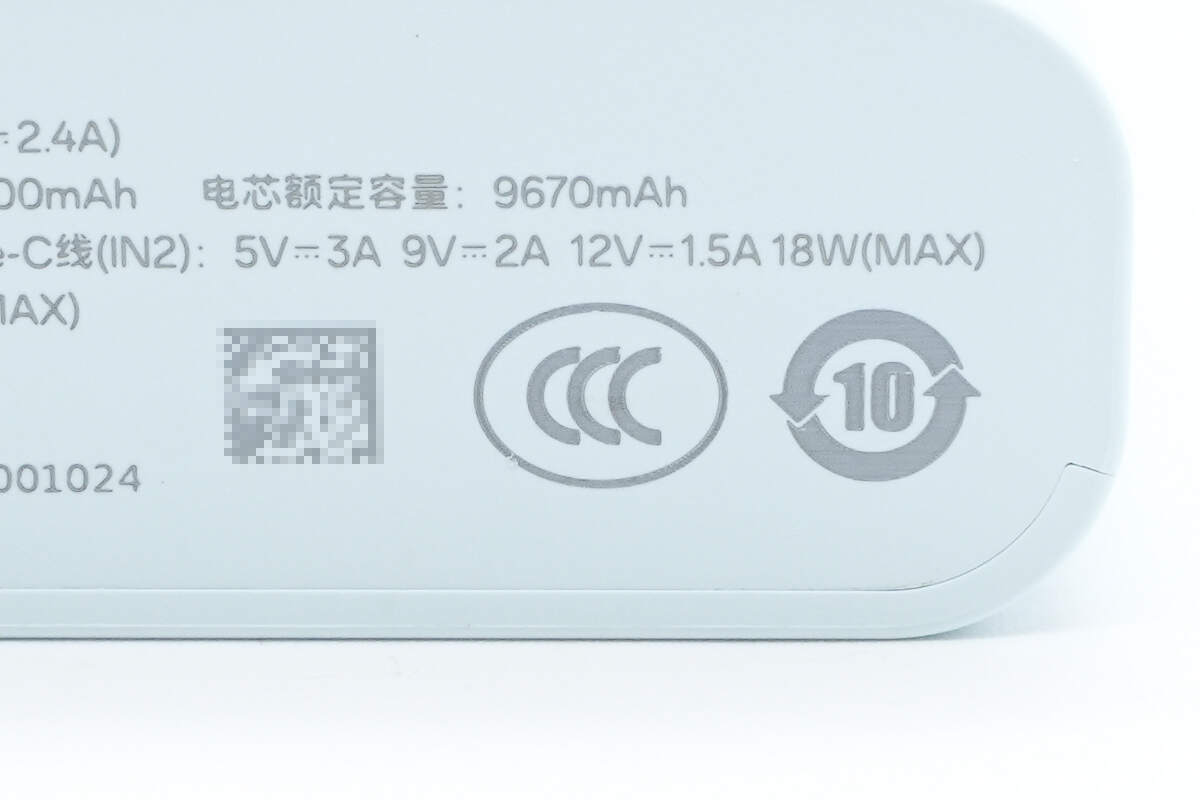
It has passed the CCC certification.
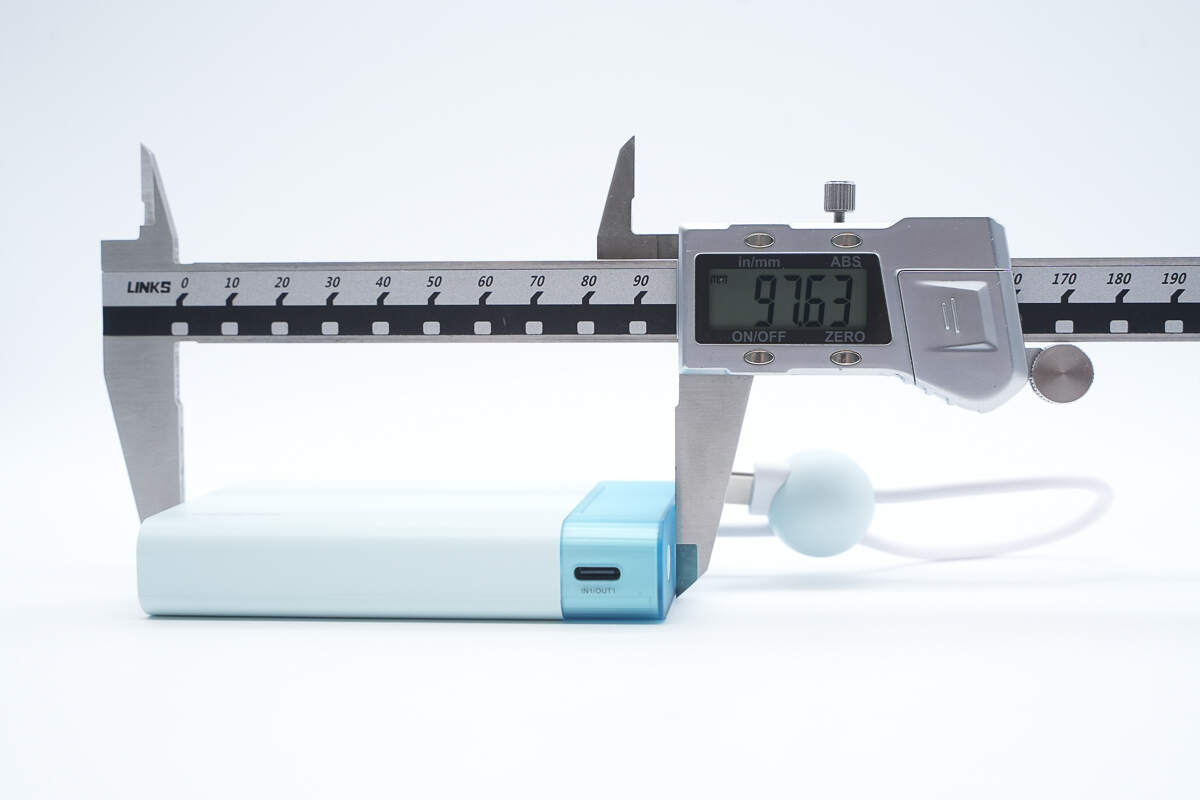
The length of the power bank is about 97.63 mm (3.84 inches).
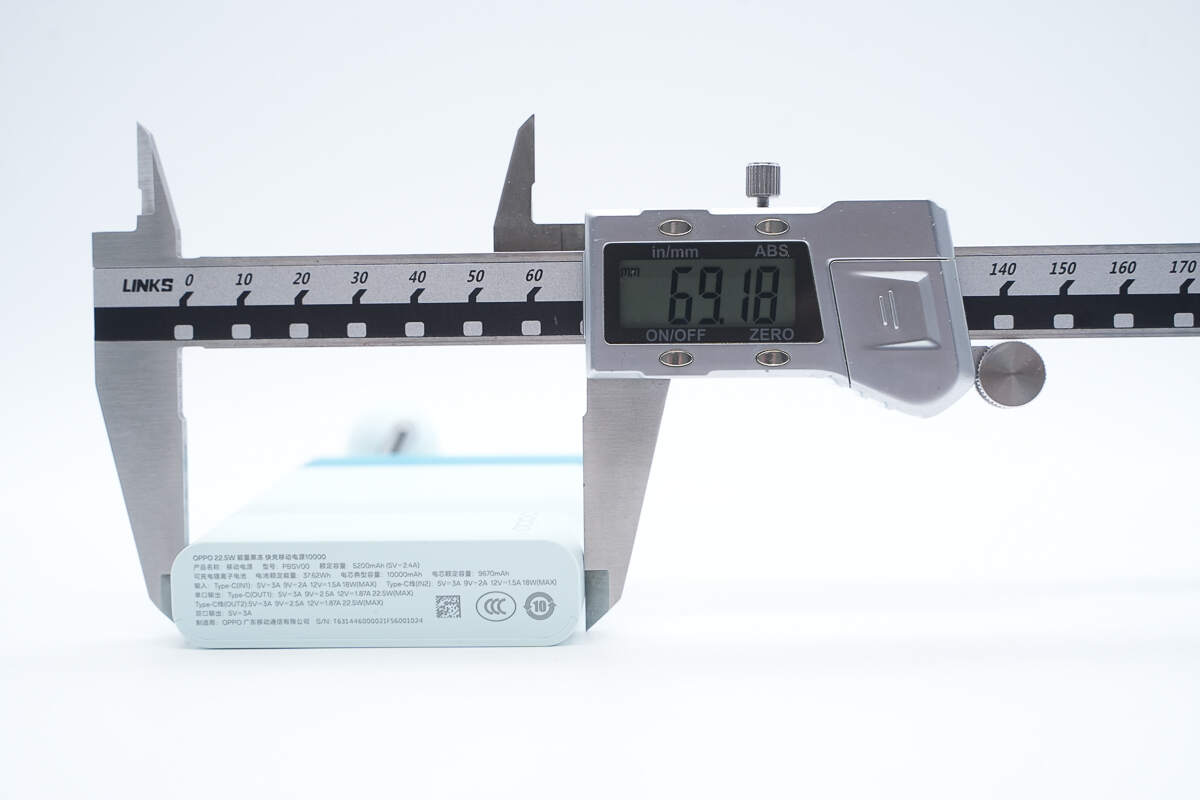
The width is about 69.18 mm (2.72 inches).
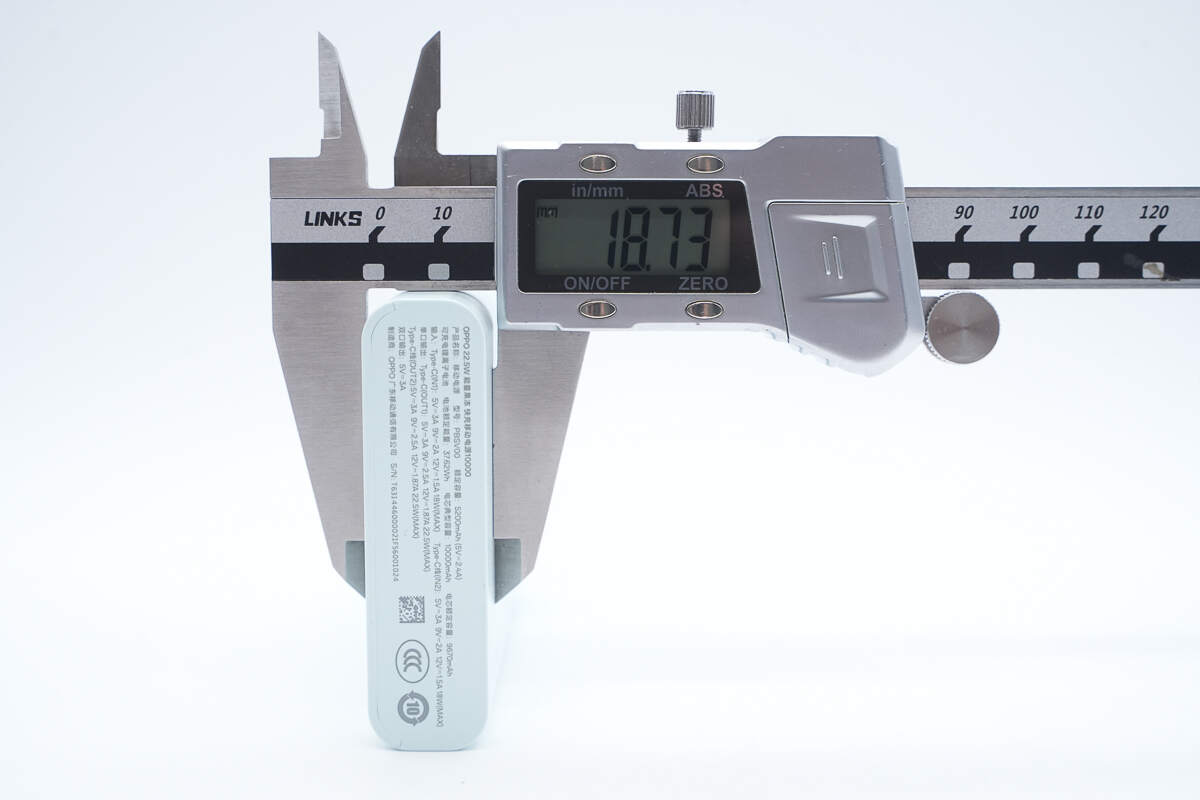
The thickness is about 18.73 mm (0.74 inches).
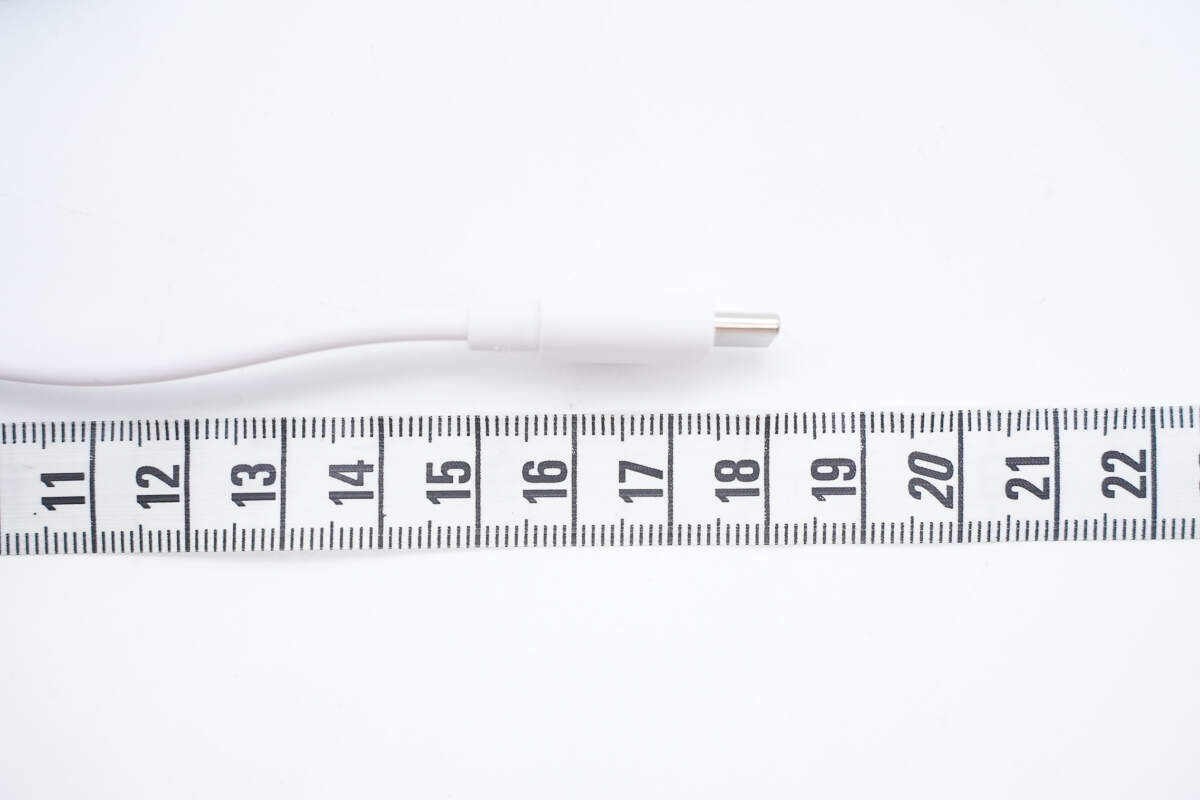
The length of the cable is about 18 cm (7.087 inches).
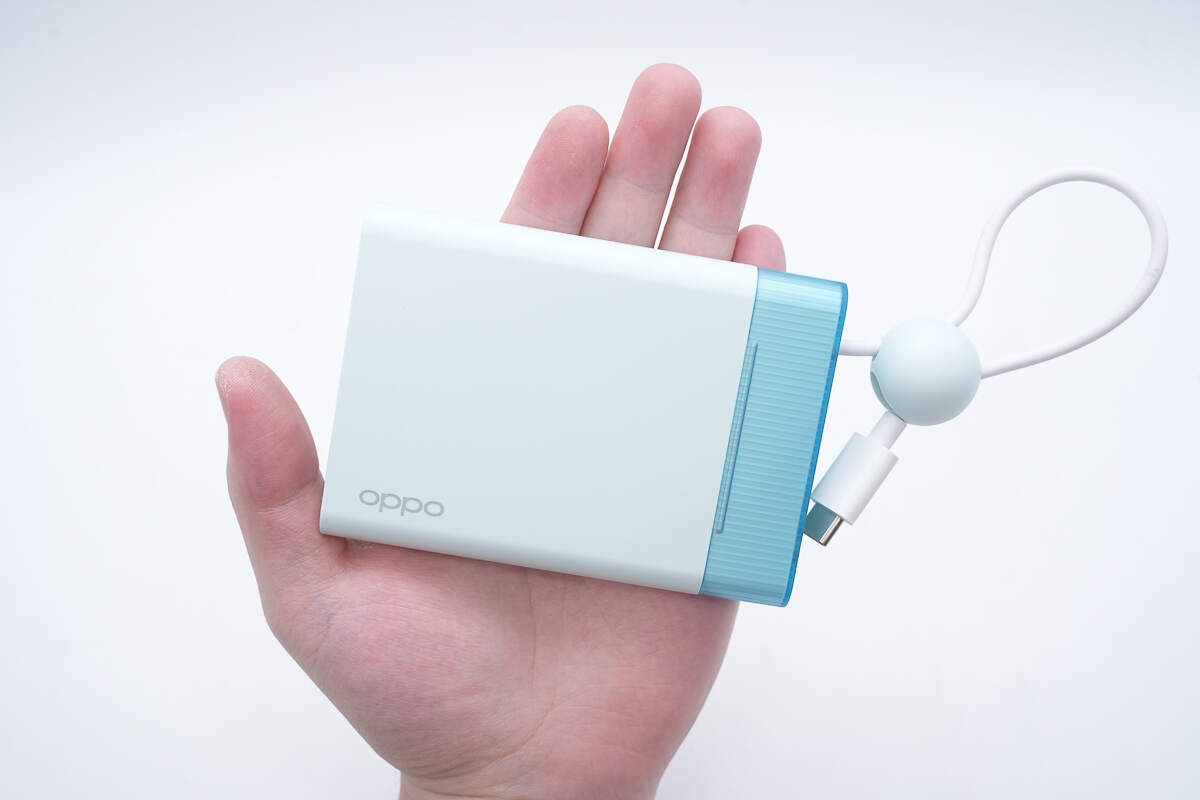
That's how big it is in the hand.
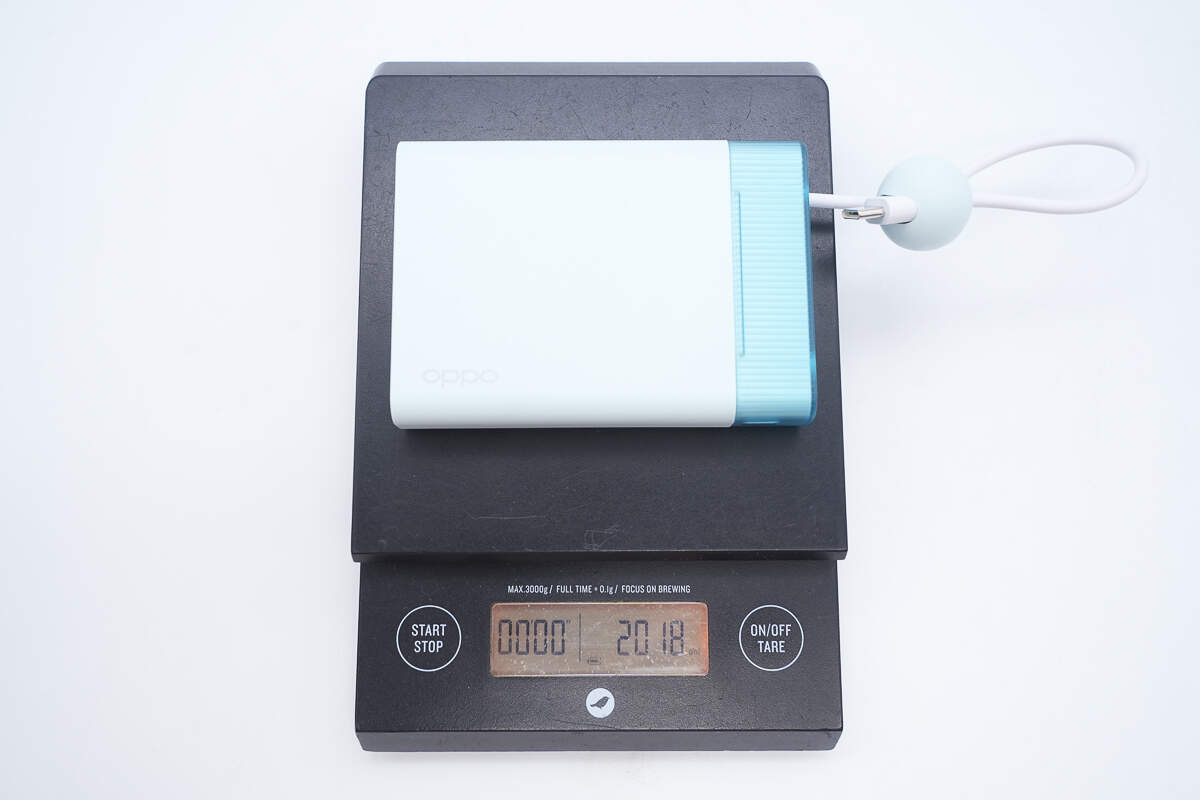
The weight is about 202 g (7.13 oz).
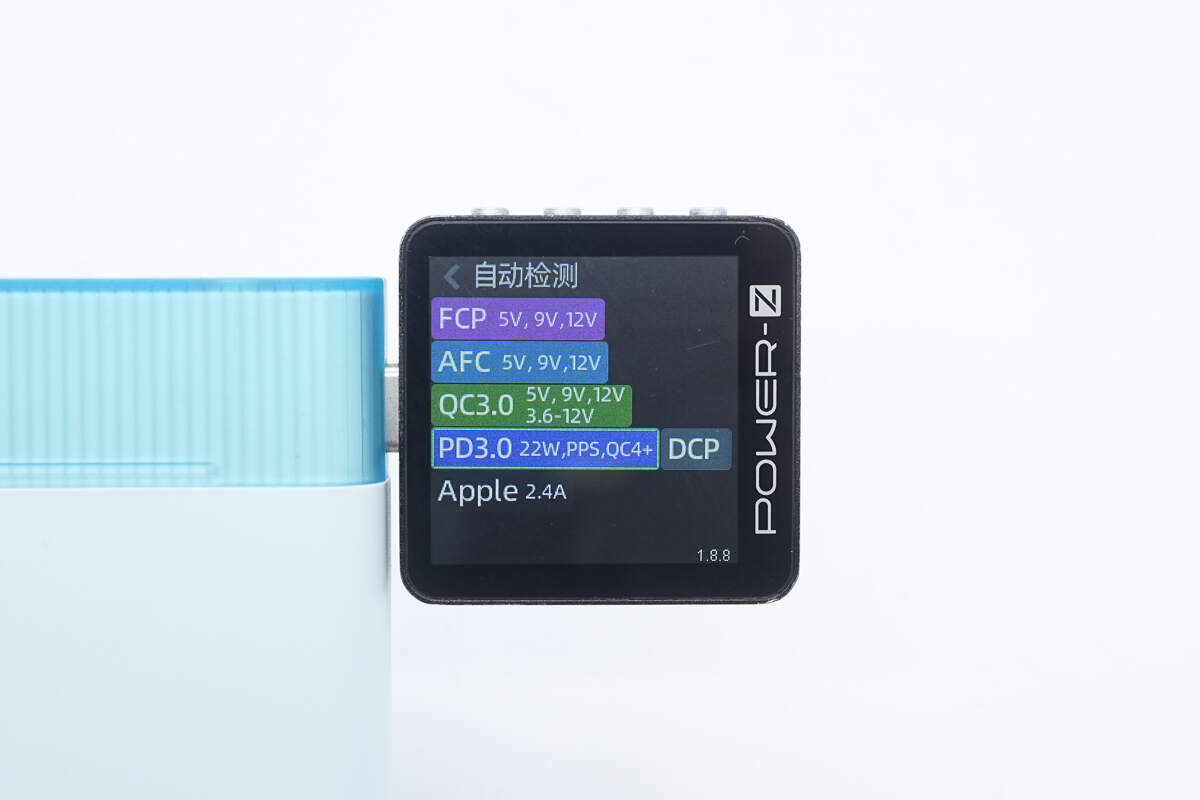
ChargerLAB POWER-Z KM003C shows that the USB-C port supports FCP, AFC, QC3.0/4+, PD3.0, PPS, DCP, and Apple 2.4charging protocols.
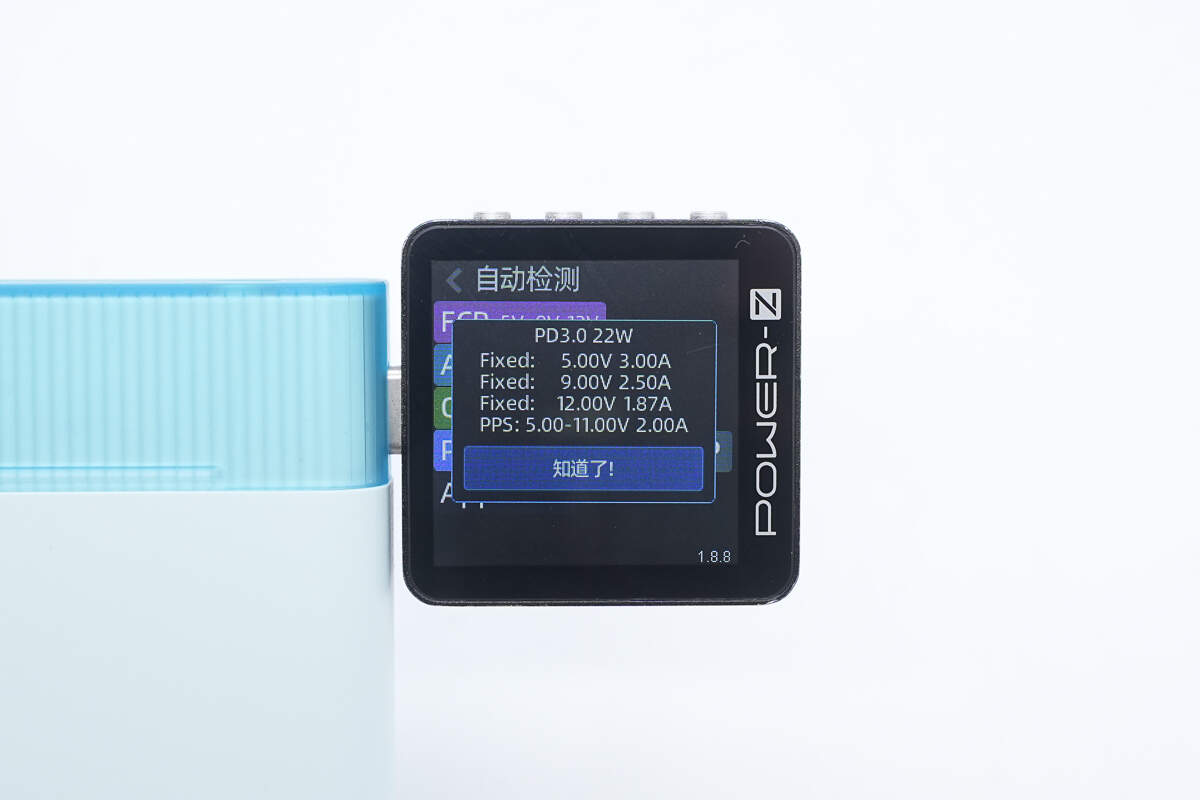
And it has three fixed PDOs of 5V3A, 9V2.5A, and 12V1.87A. It has one set of PPS, which is 5-11V2A.
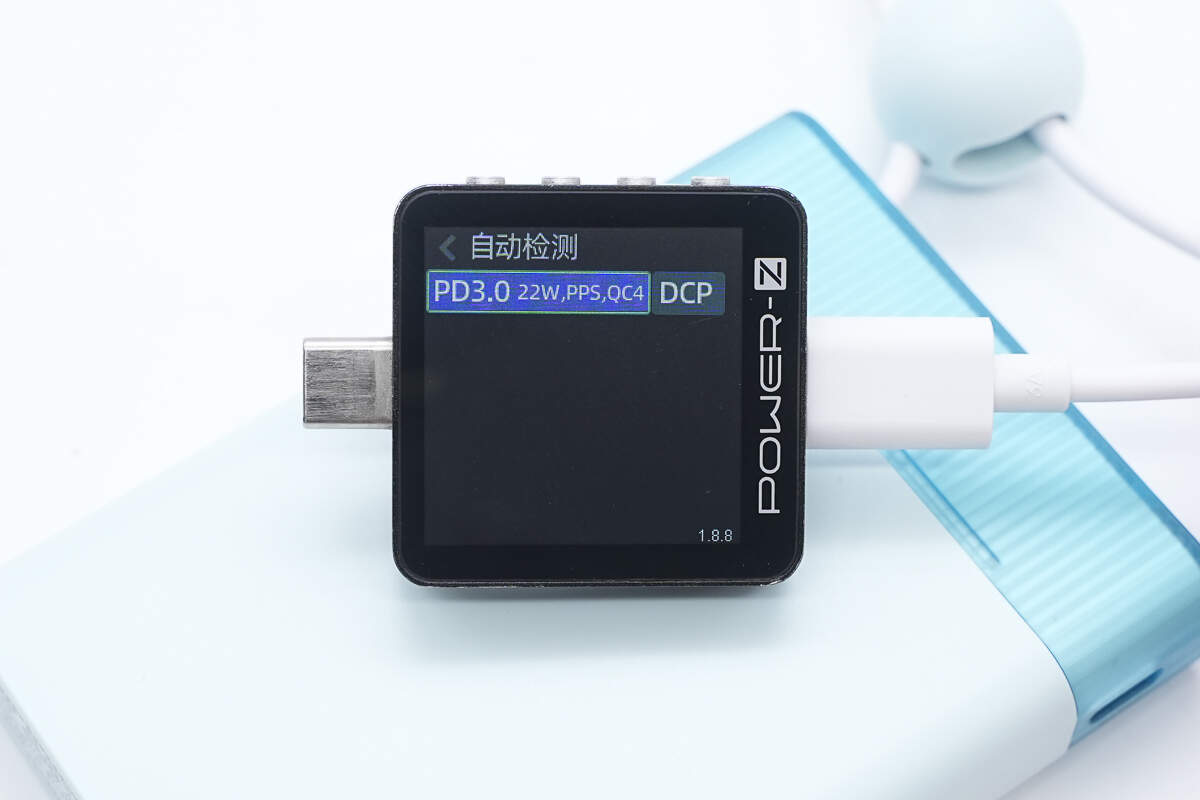
The USB-C cable supports PD3.0, PPS, QC4+, and DCP charging protocols.
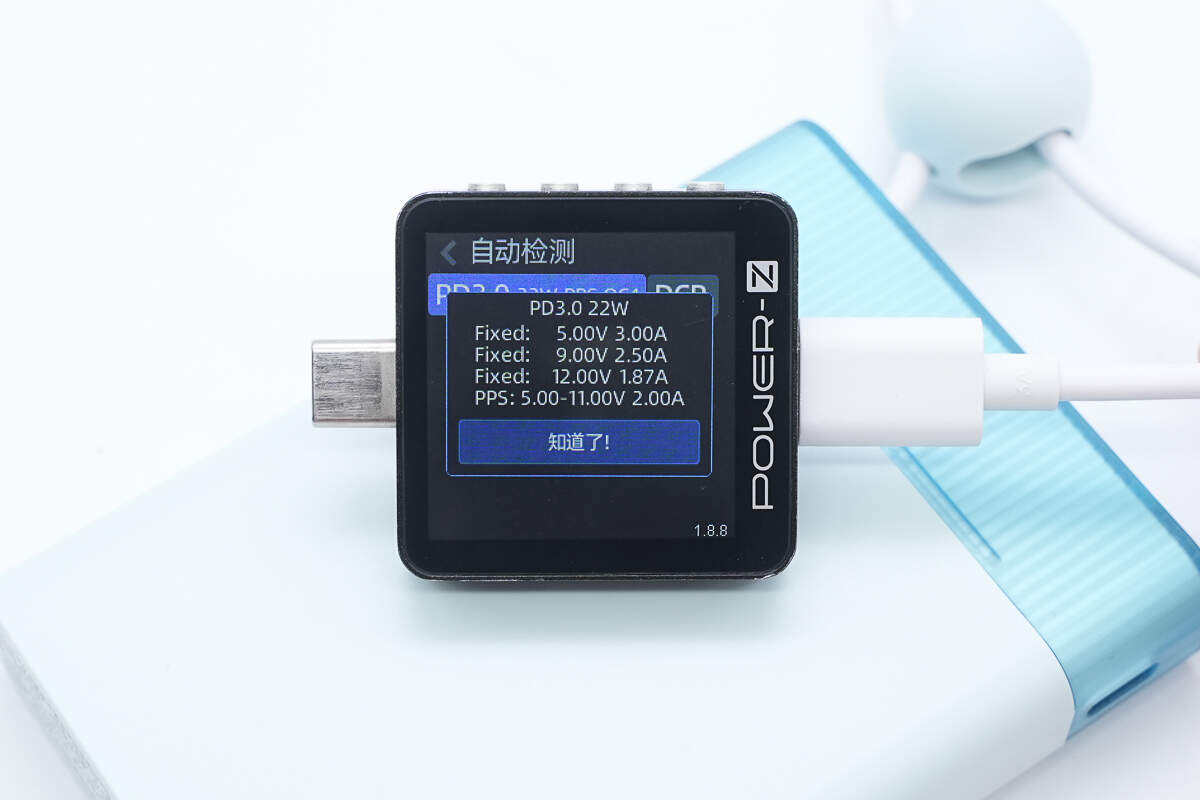
The PDO message display matches that of the USB-C port.
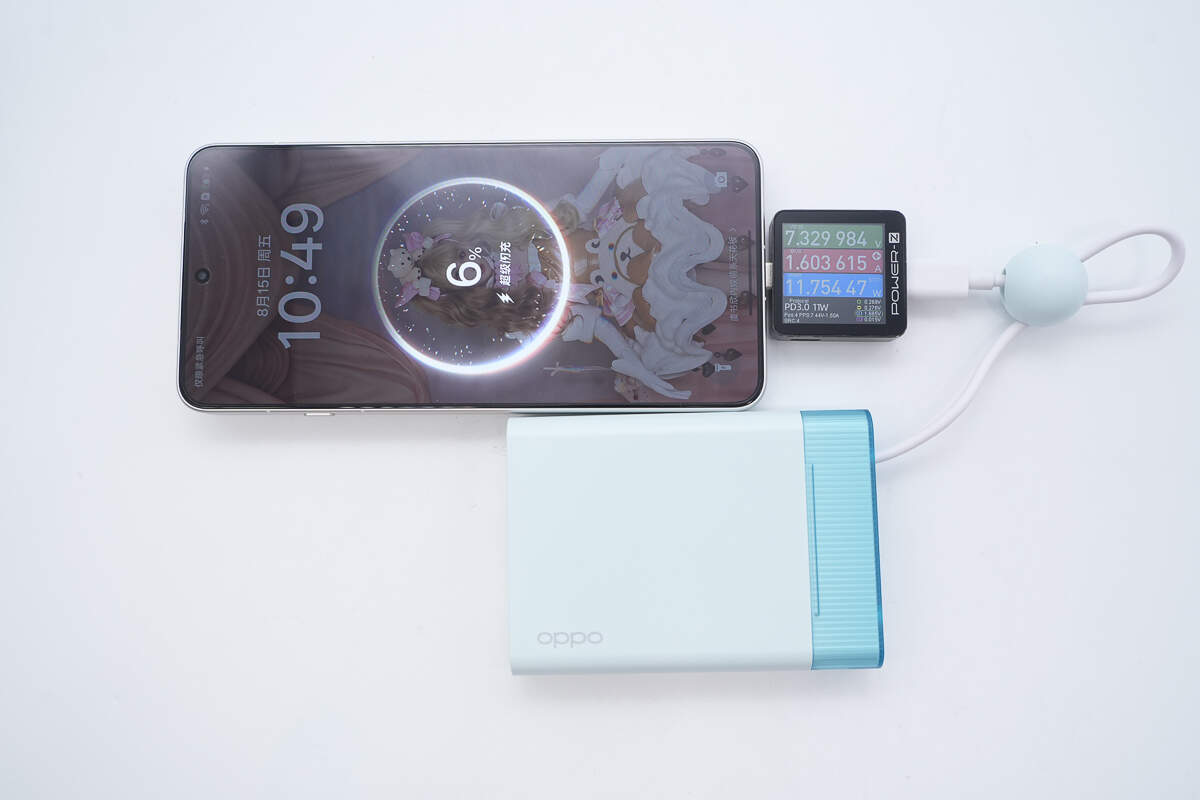
Using the built-in USB-C cable to charge the OPPO Find X8 Ultra successfully activates OPPO SuperVOOC fast charging.
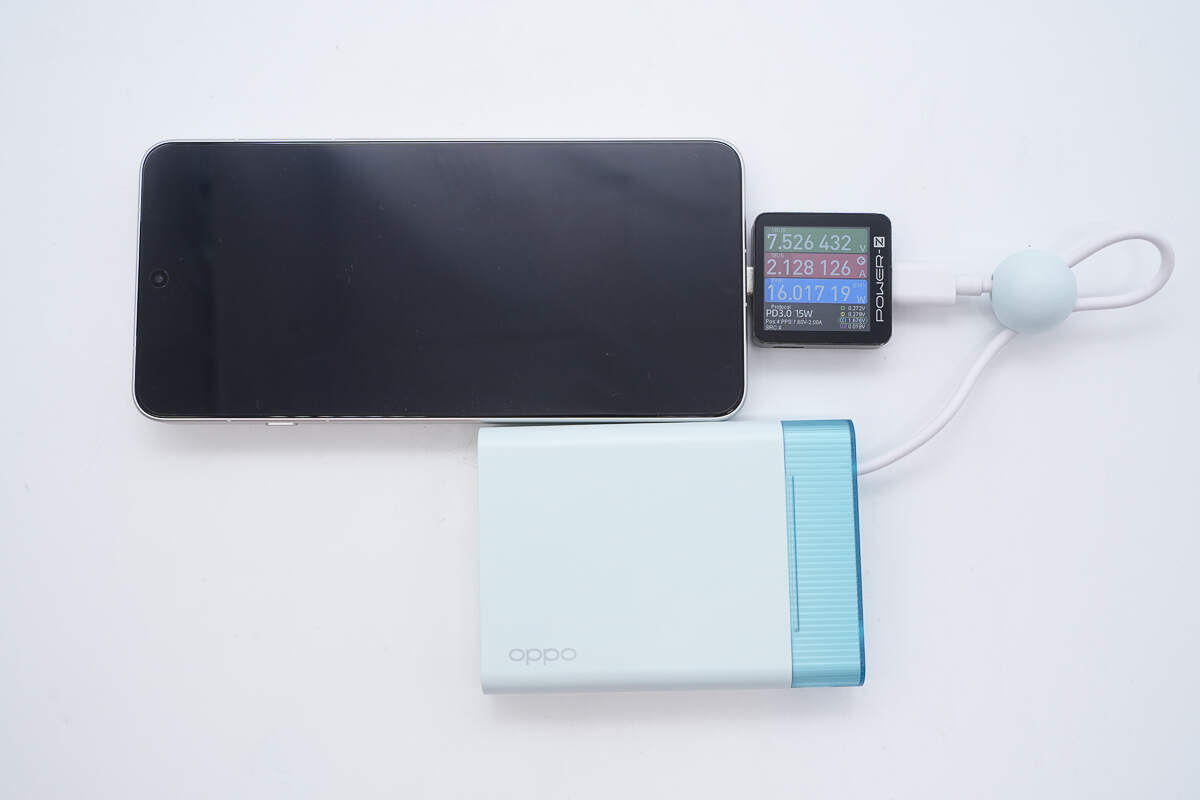
When the charging power stabilizes, it reaches about 16W.
Teardown
Next, let's take it apart to see its internal components and structure.
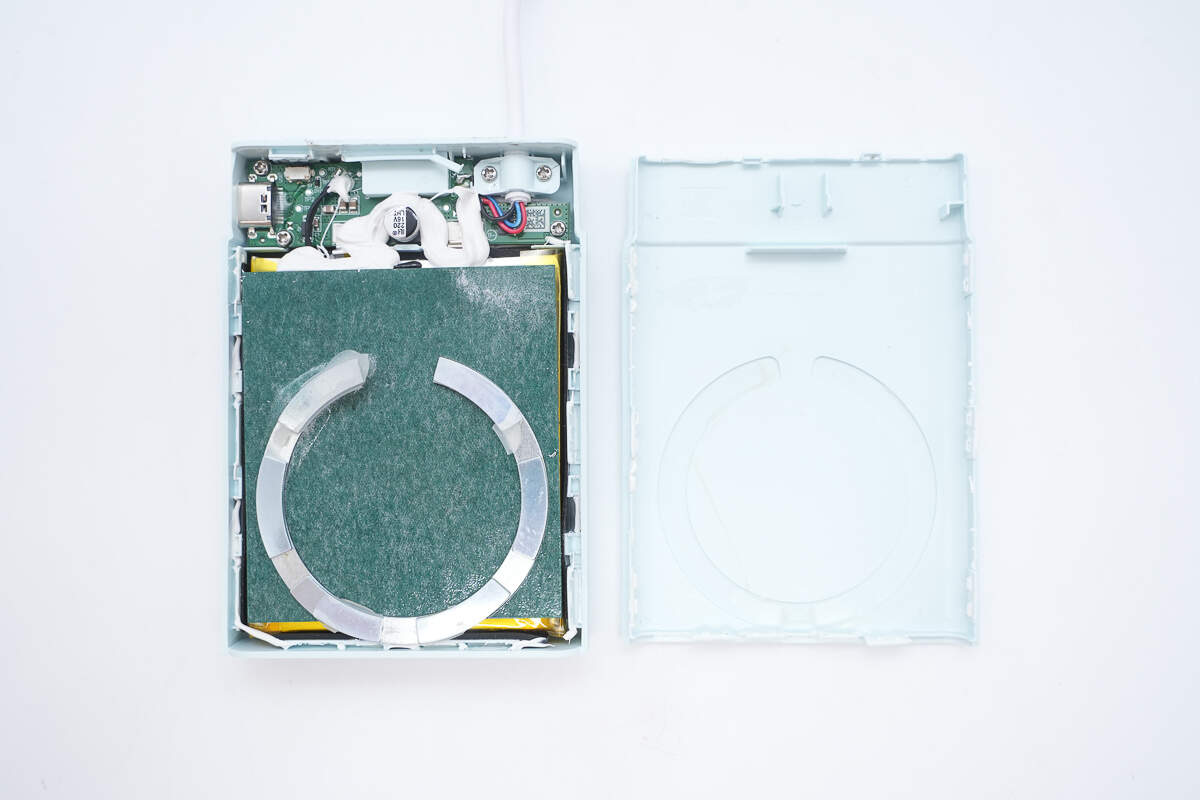
Upon disassembly, the outer shell is found to be secured with snap-fit clips.
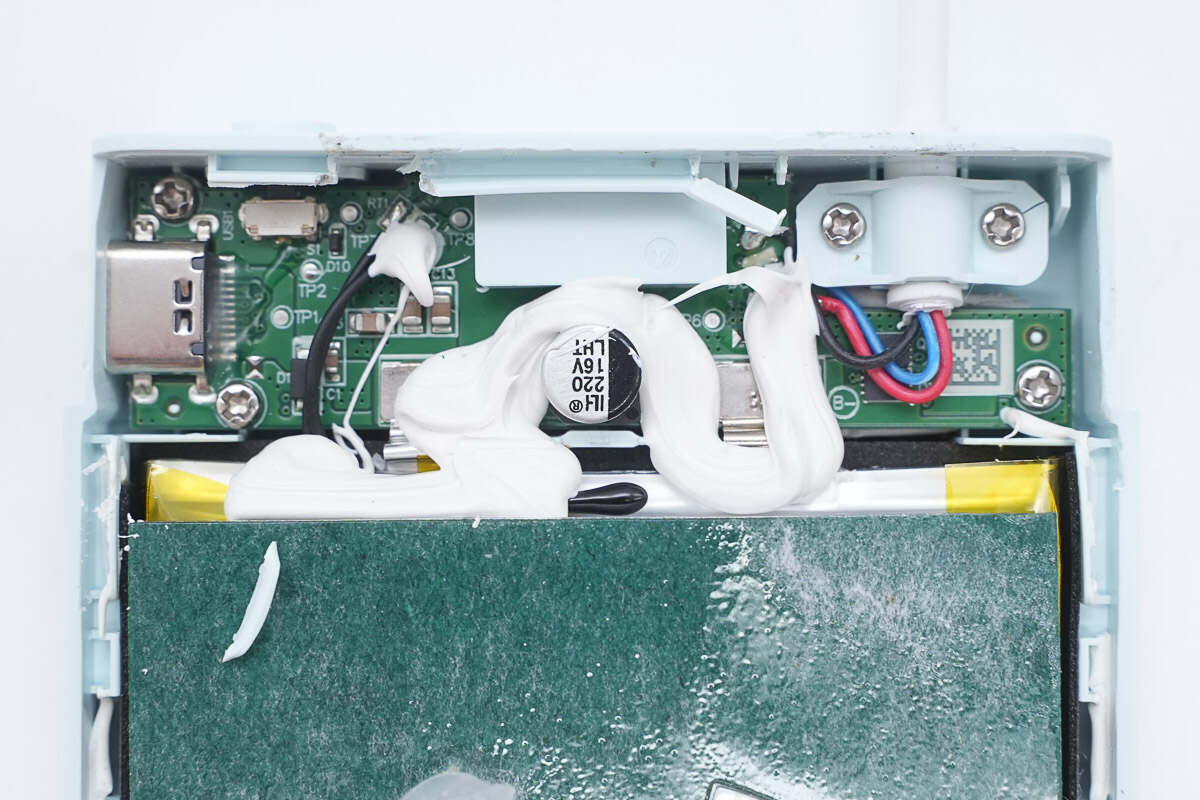
The PCBA and built-in USB-C cable are secured with screws. Components such as the thermistor and capacitors are reinforced with adhesive. The battery cells are connected to the PCBA via spot-welded nickel strips.
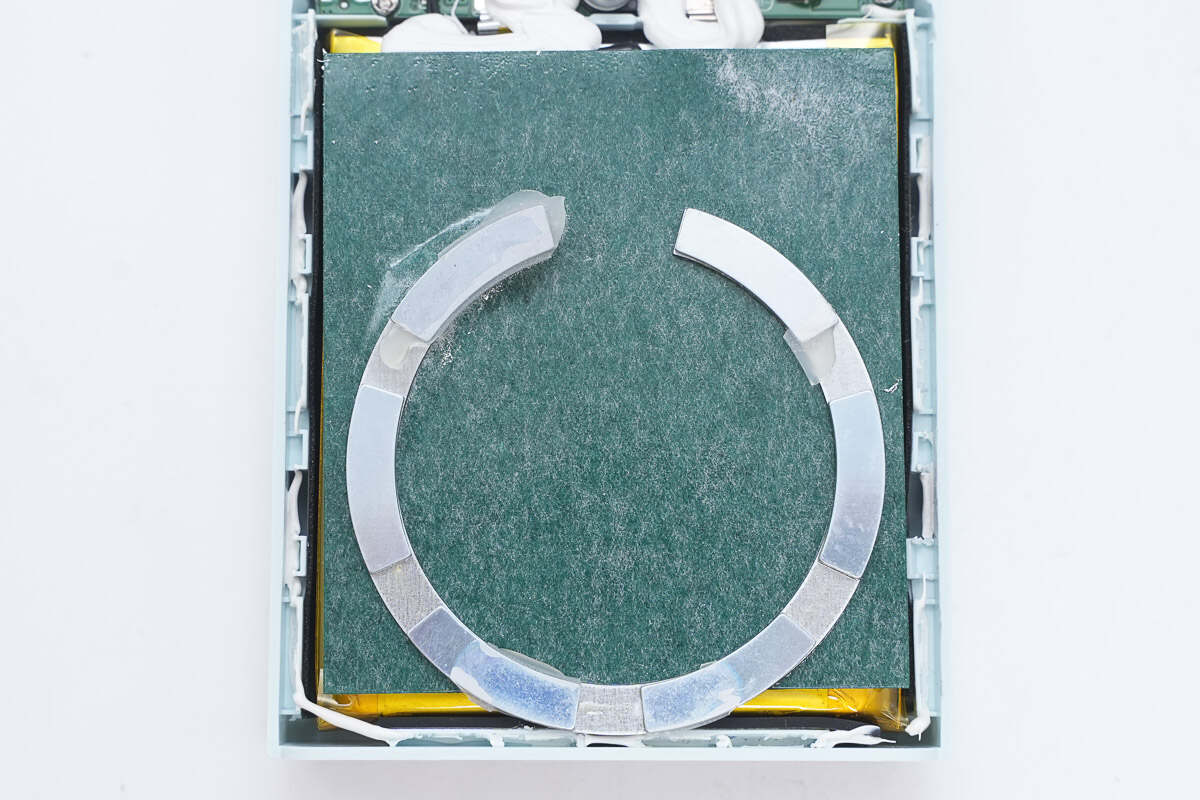
The magnet is placed on top of the battery cell, with insulating fish paper positioned in between for safety.
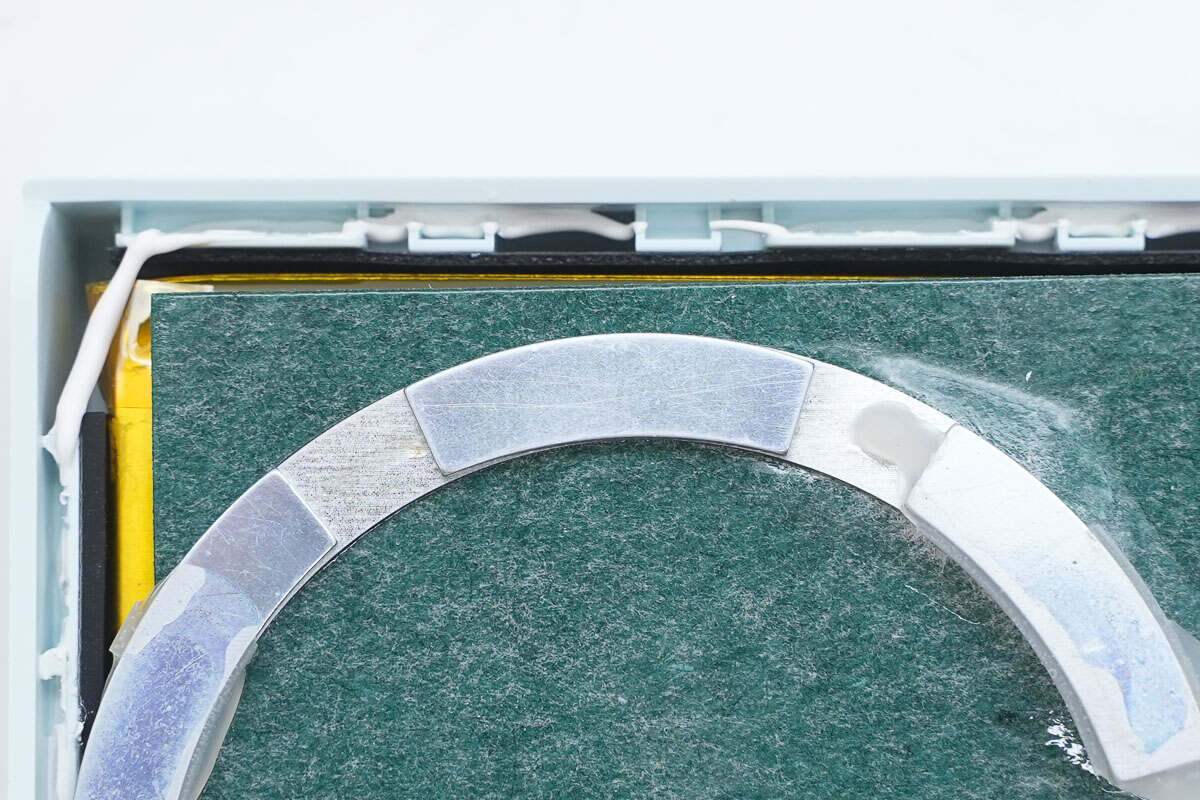
Cushioning foam is placed between the battery cell and the outer casing for shock absorption. The magnetic ring is secured in place with adhesive.
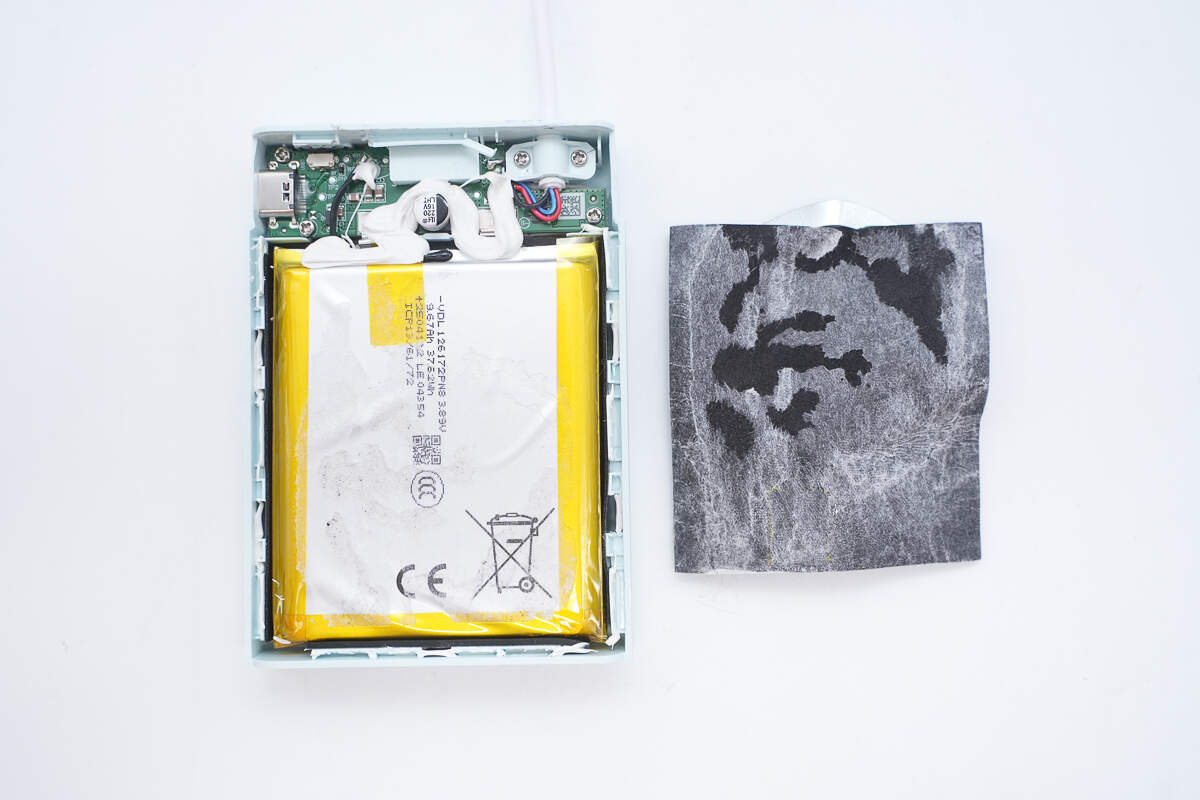
The fish paper is attached to the battery cell using double-sided adhesive.
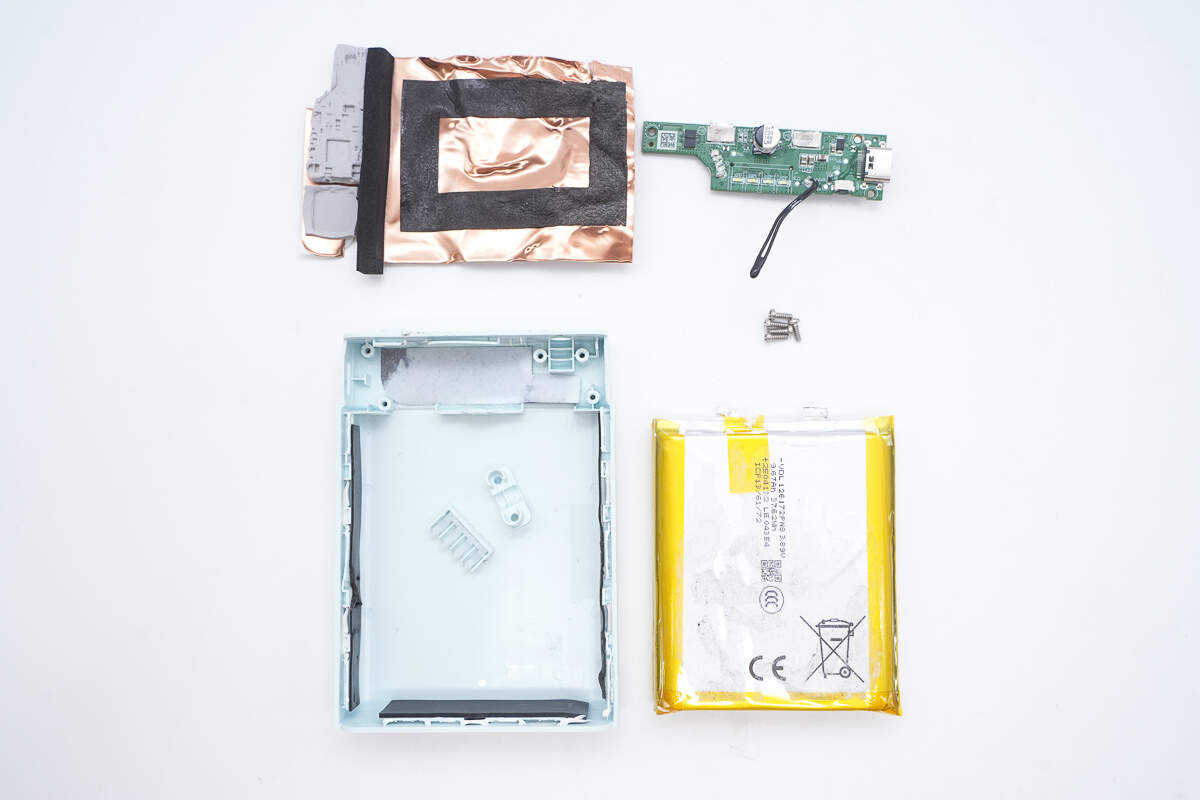
After removing the battery cell and PCBA, there is a layer of heat-dissipating copper foil and a thermal pad underneath.
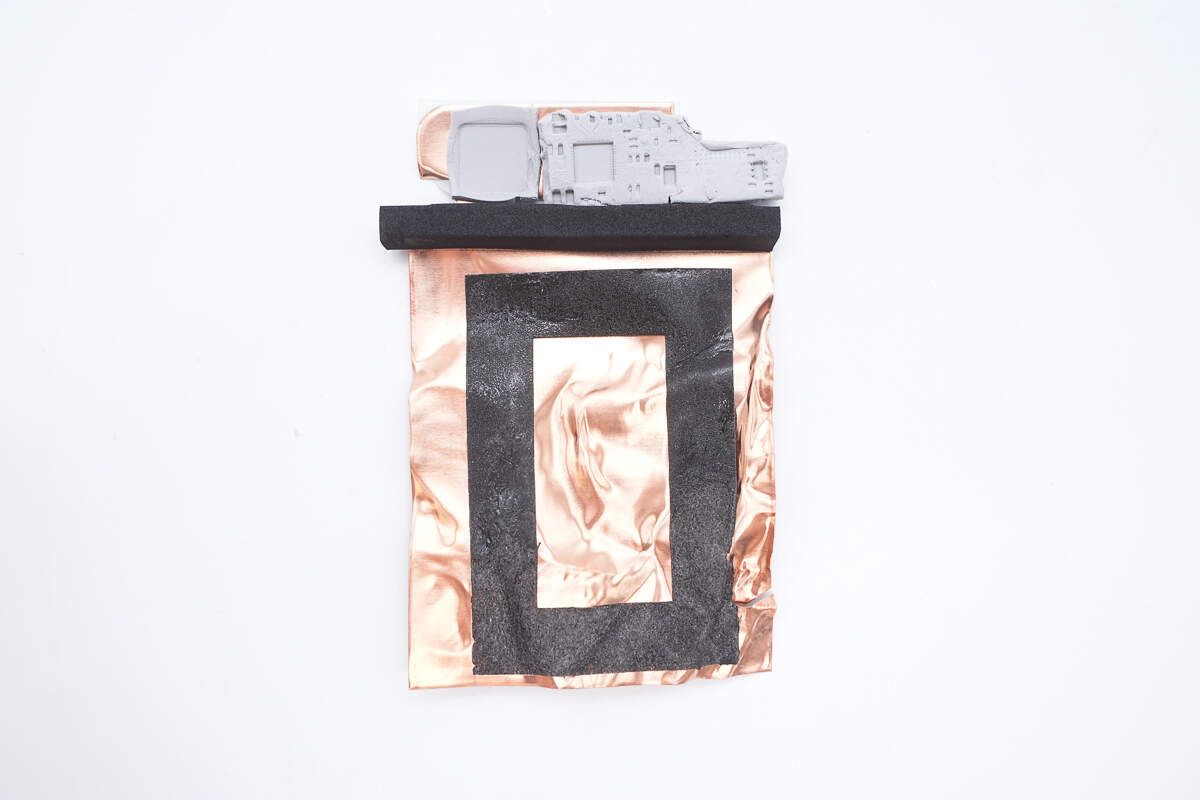
The heat-dissipating copper foil is attached with double-sided tape and foam padding.
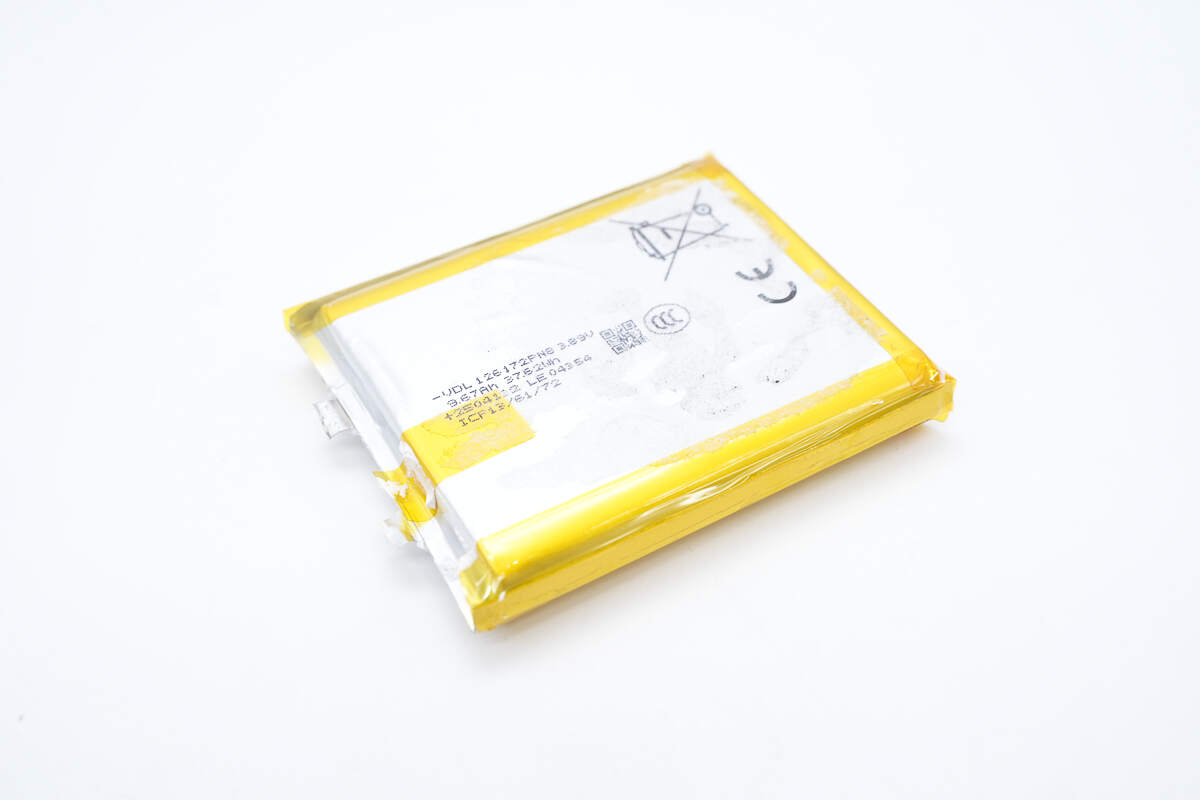
Insulating tape is applied around the perimeter of the battery cell.
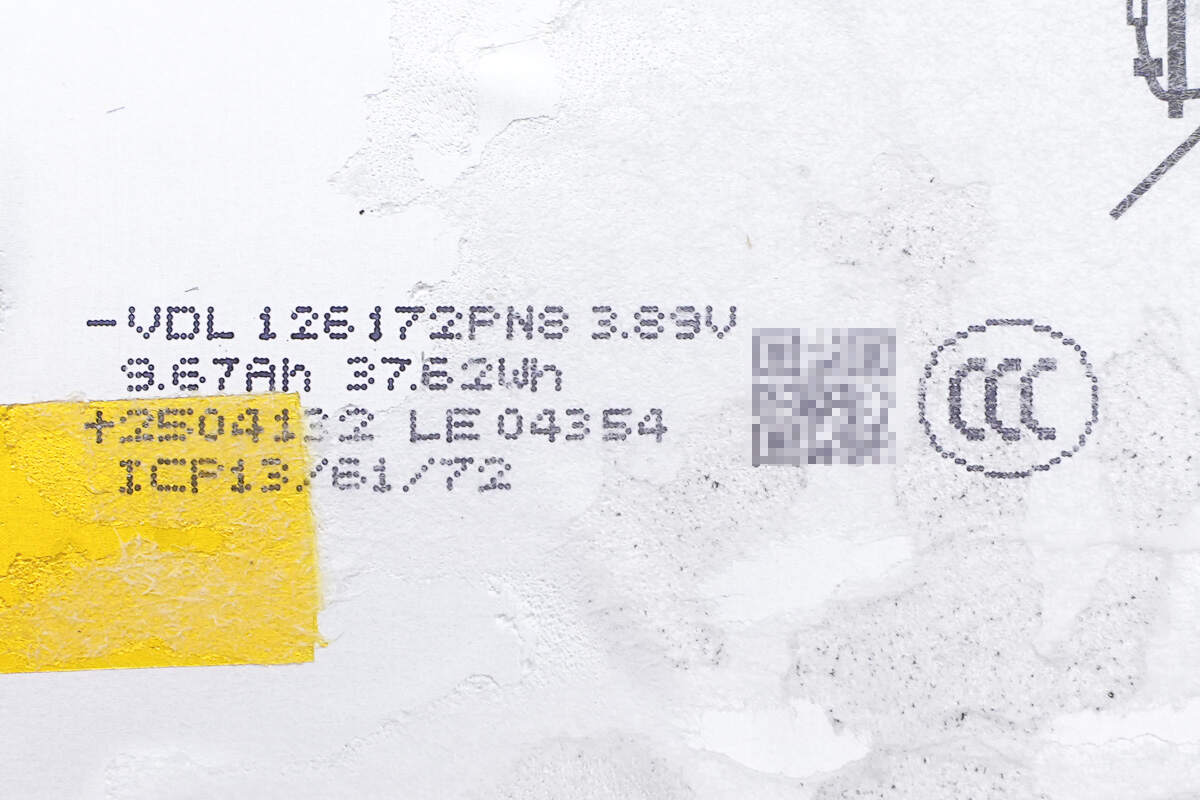
The battery cell is from VDL, model 126172PN8, with a nominal voltage of 3.89V, rated capacity of 9.67Ah, and energy of 37.62Wh. It has passed the CCC certification.
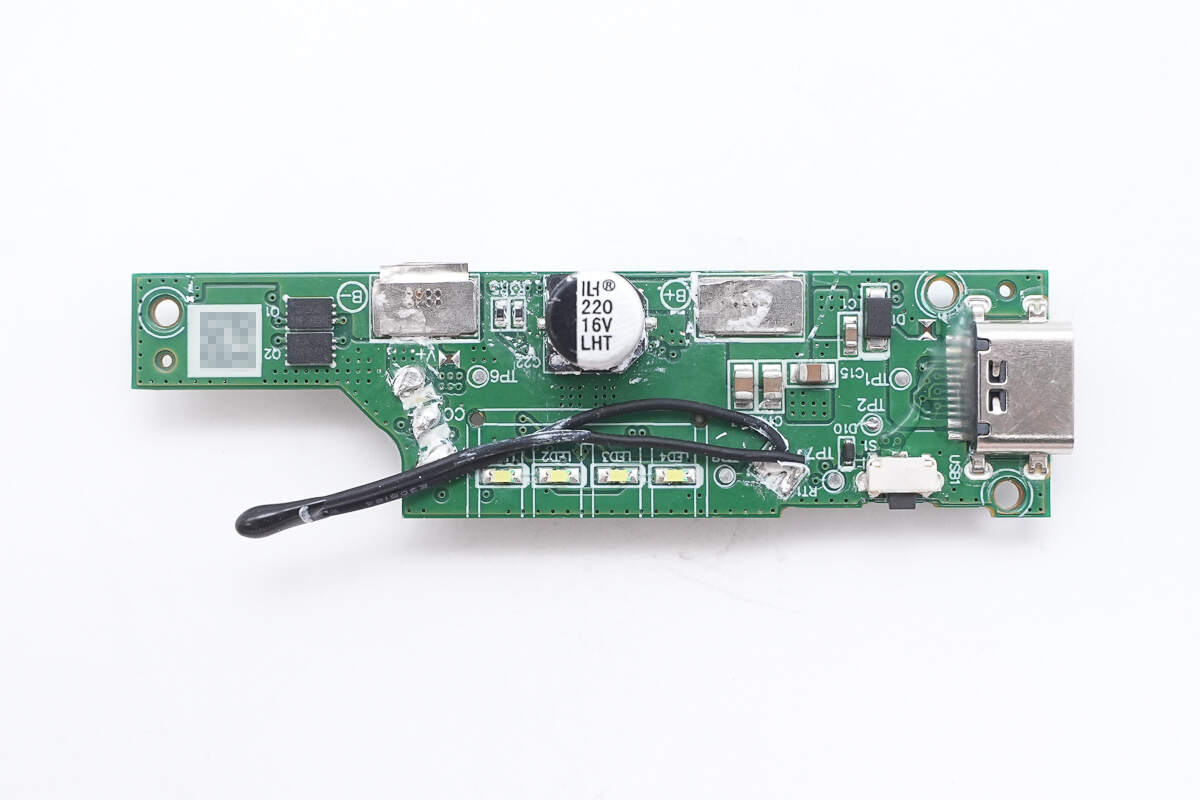
After removing the white adhesive from the front of the PCB, the following components are visible: battery protection MOSFETs, an electrolytic capacitor, a thermistor, LED indicator lights, a power button, and a USB-C socket.
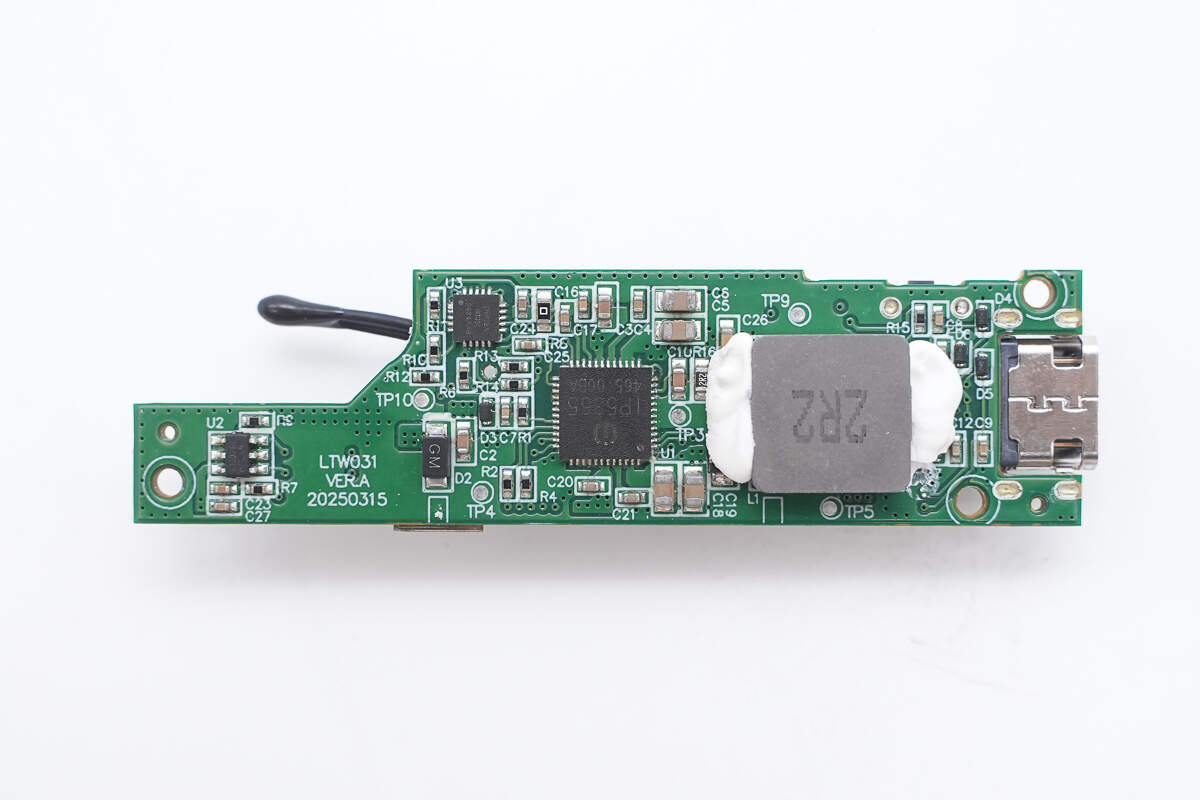
The back side features a master control chip and a battery protection chip.
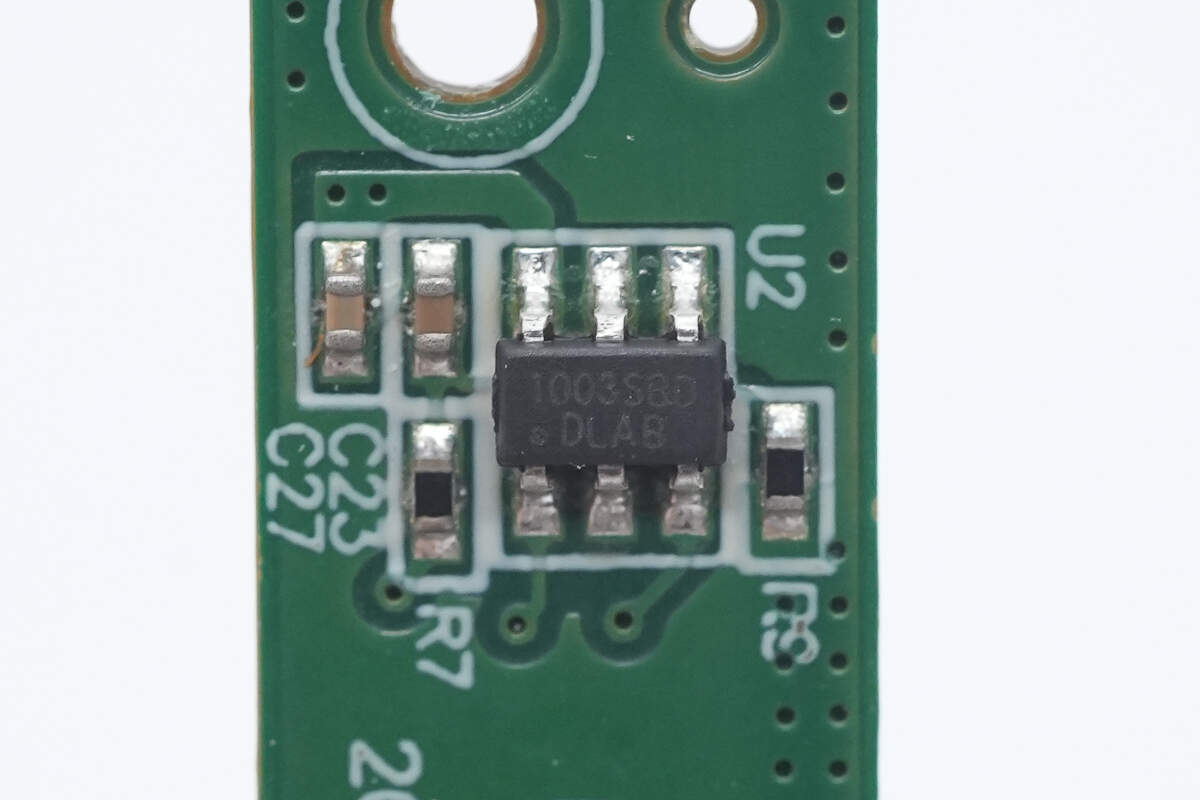
The battery protection chip is from iCM, marked with 1003SBD. The model is CM1003-SBD. It is a single-cell lithium battery protection chip that supports high-voltage lithium battery applications. The overcharge protection voltage is 4.475V with a precision of 20mV. The overdischarge protection voltage is 2.76V with a precision of 50mV. It uses an SOT23-6 package.
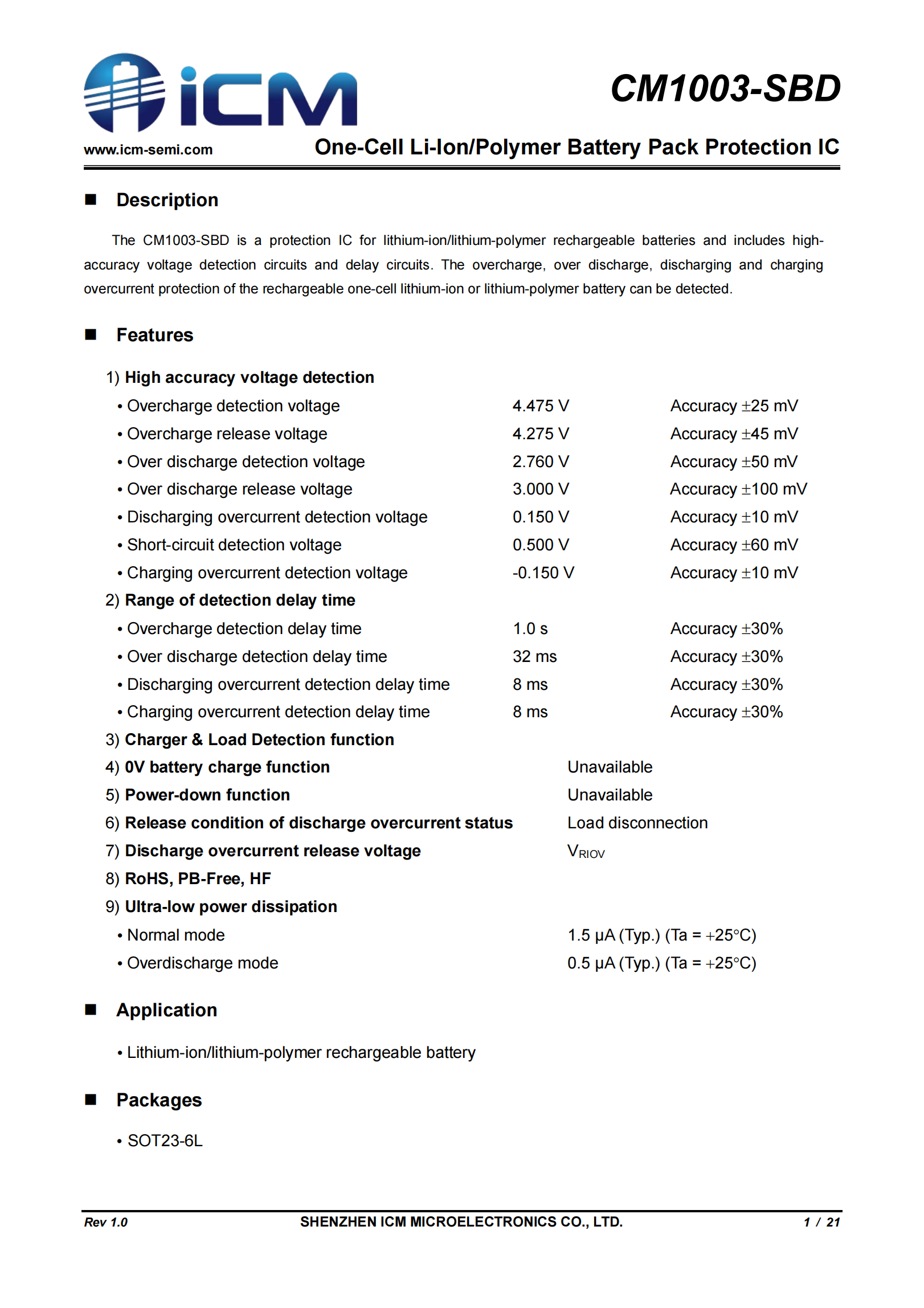
Here is the information about iCM CM1003-SBD.
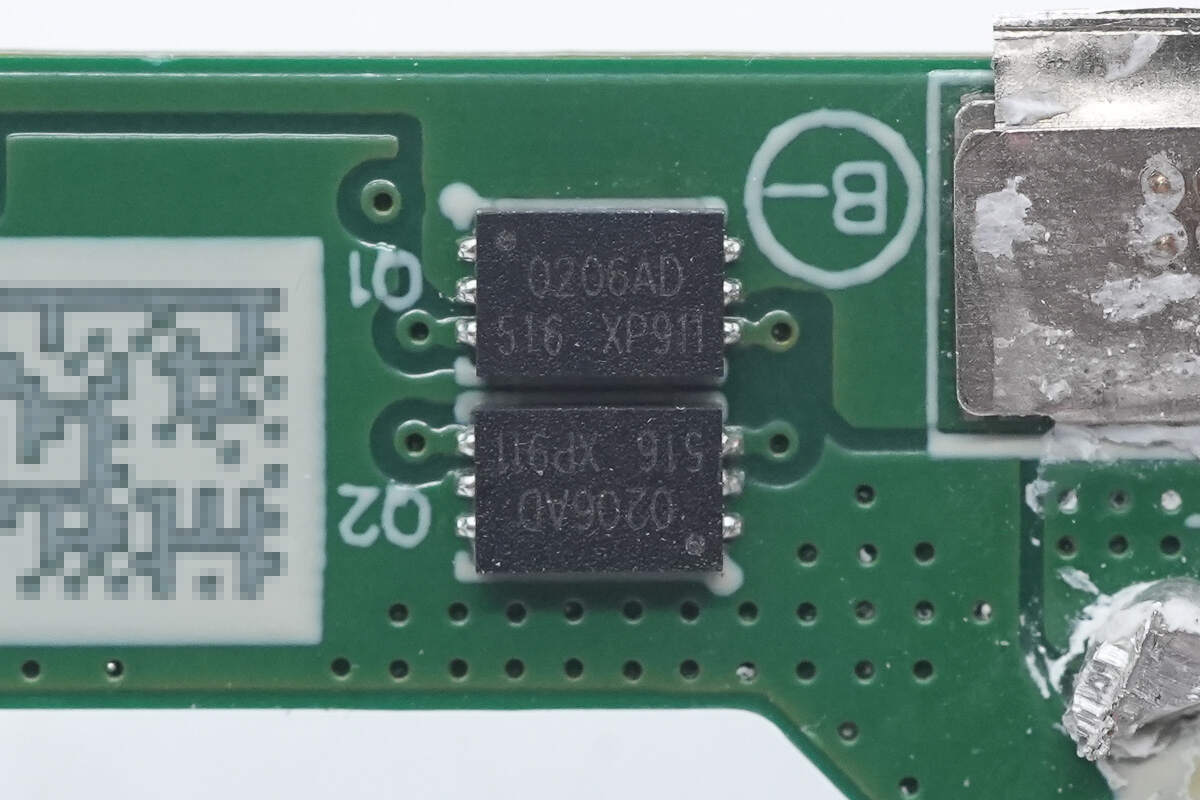
Two battery protection MOSFETs are from CRM, marked with 0206AD. The model is CRMVATU0206AD. These are dual N-channel MOSFETs with a voltage rating of 20V and an on-resistance of 6.7mΩ. They use a DFN2x3-6L-D package.
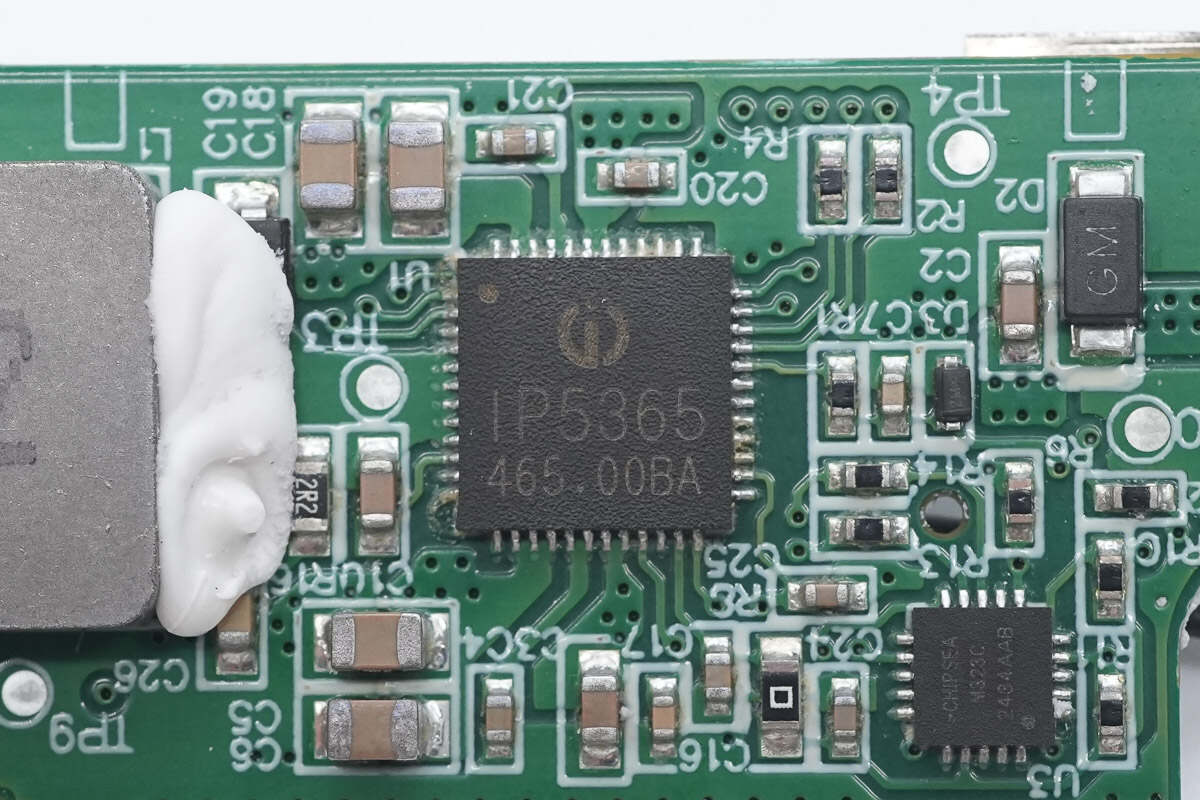
The SoC is from Injoinic, model IP5365. It features two USB-C ports that support both input and output, one USB-C or USB-A output port, and one additional USB-A output port, supporting a total of three USB output ports. Each port supports fast charging. It supports PD 3.0, PPS charging, and UFCS protocols, as well as AFC, FCP, SCP, and QC 2.0/3.0 protocols. Additionally, it integrates Lightning input communication.
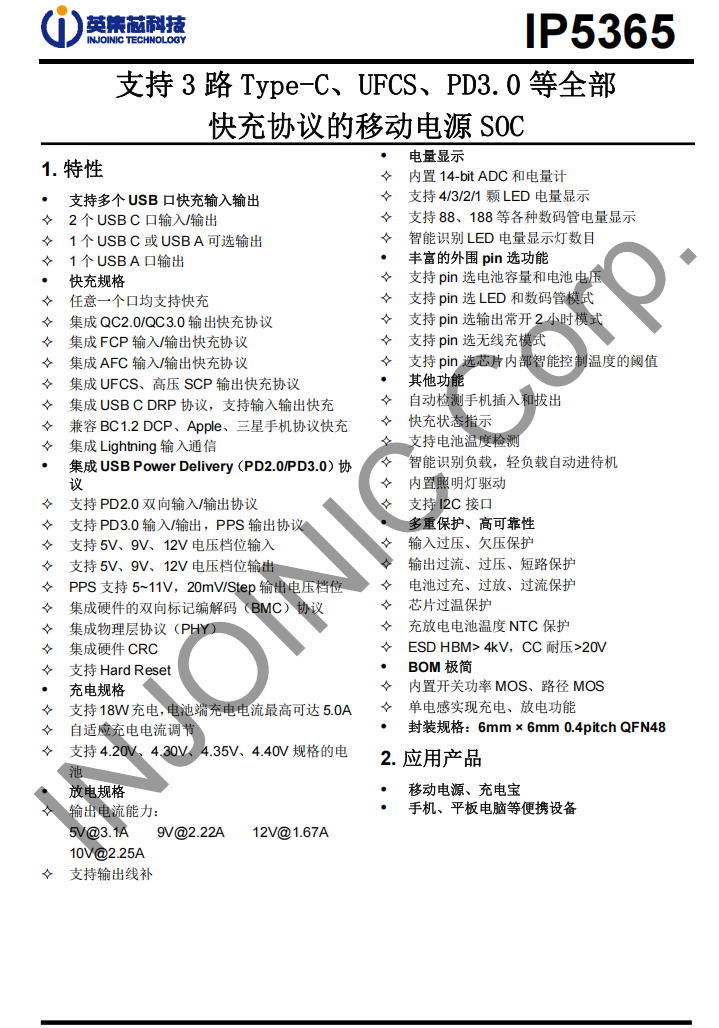
IP5365 supports 18W fast charging. The battery charging current can reach up to 5A and supports battery voltages of 4.2V, 4.3V, 4.35V, and 4.4V. It has built-in switching power MOSFETs and path MOSFETs, and integrates a 14-bit ADC. It supports 1 to 4 LED lights for battery level indication, as well as 88 or 188 digital tube displays. It supports automatic power on and off. It integrates input overvoltage and undervoltage protection, output overcurrent, overvoltage, and short-circuit protection, battery overcharge, overdischarge, and overcurrent protection. The chip has built-in overheat protection and supports an external NTC for battery temperature protection.
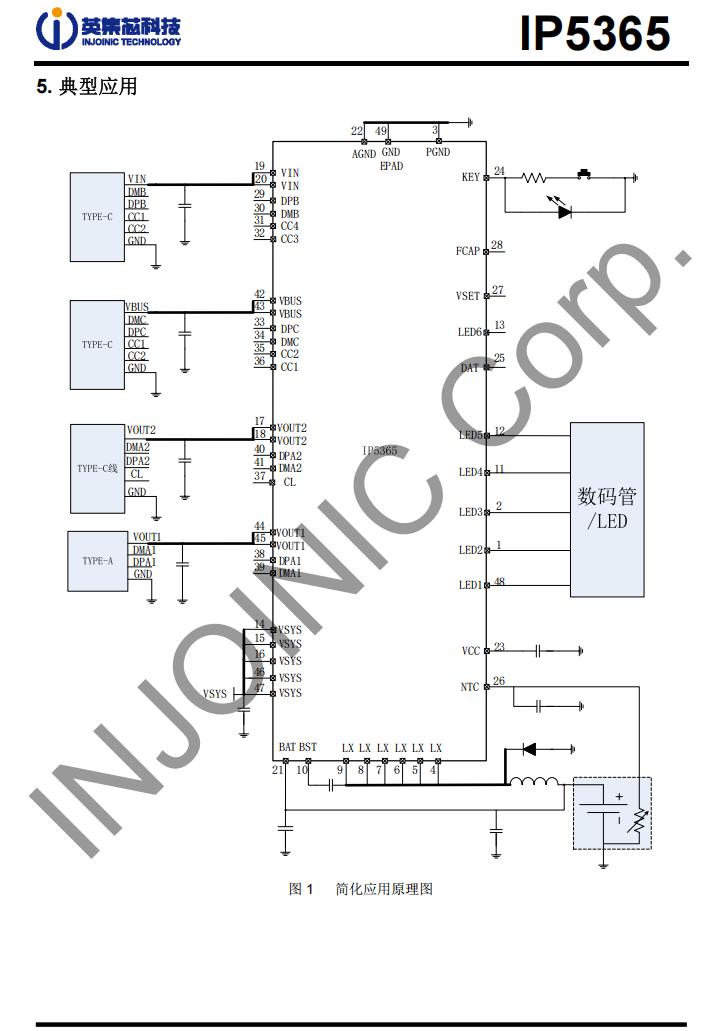
The above diagram shows the application schematic of the Injoinic IP5365. Compared to traditional solutions, it integrates the VBUS MOSFETs for each interface inside the chip, greatly simplifying the external components and significantly reducing layout complexity and material usage.
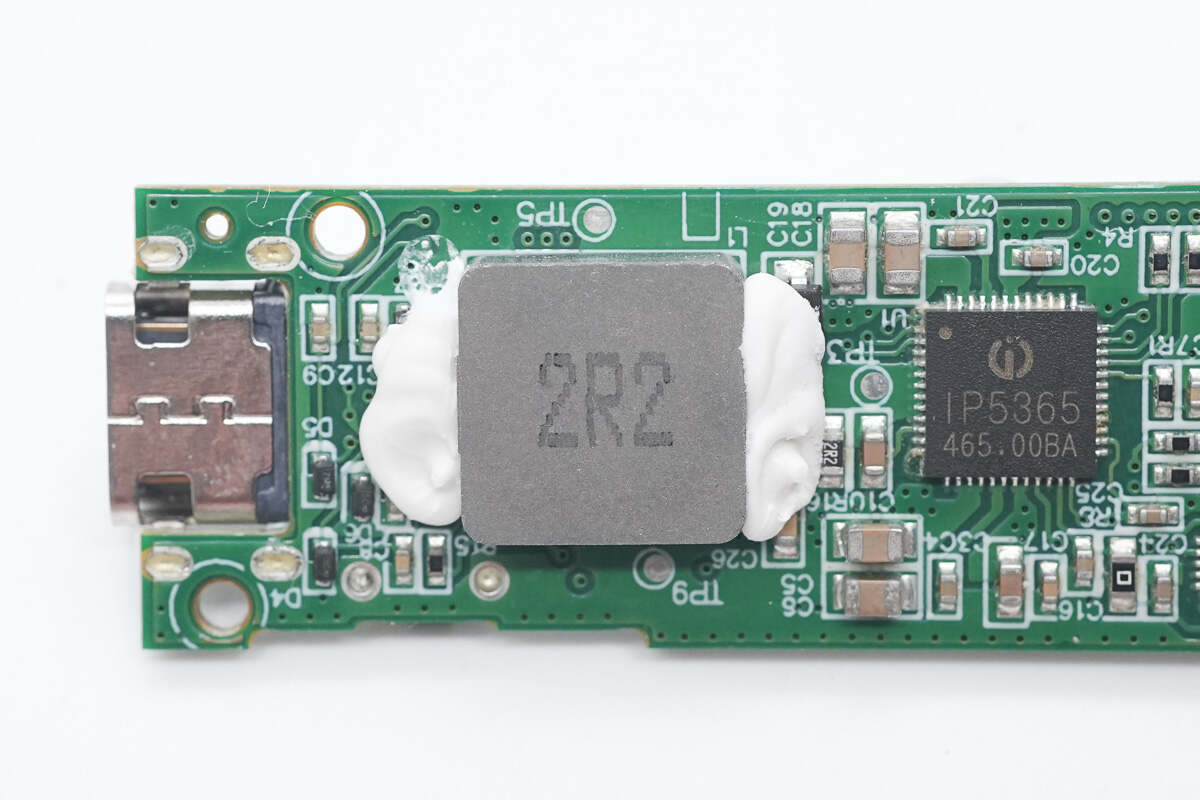
Close-up of the matching 2.2μH alloy inductor.
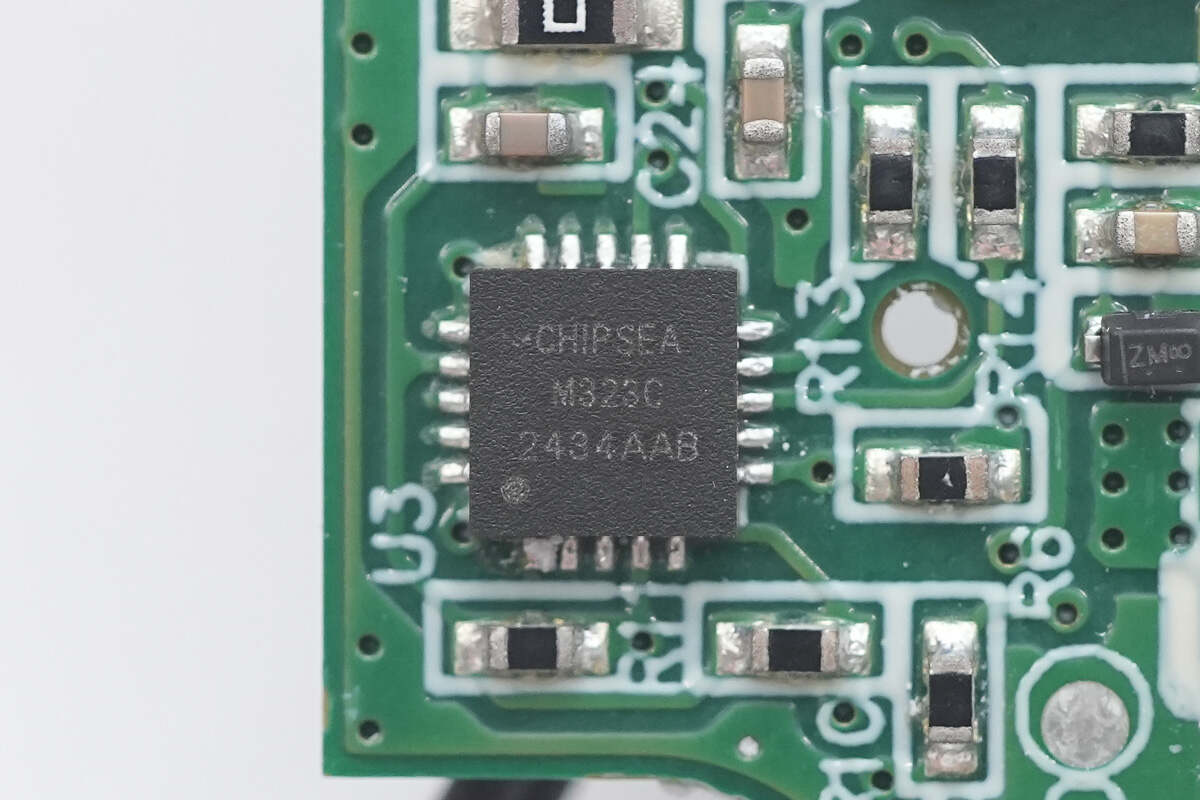
The MCU used for overall device management is from Chipsea, part of the CS8M32X series. It features 8K × 16-bit Flash memory and 488 bytes of SRAM, with multiple variants offering 16 to 20 pins. The MCU provides standard communication interfaces, including I²C and UART, as well as a 12-bit ADC and timers. It operates within a temperature range of -40°C to 85°C and a voltage range of 1.8V to 5.5V, making it suitable for consumer electronics such as e-cigarettes.
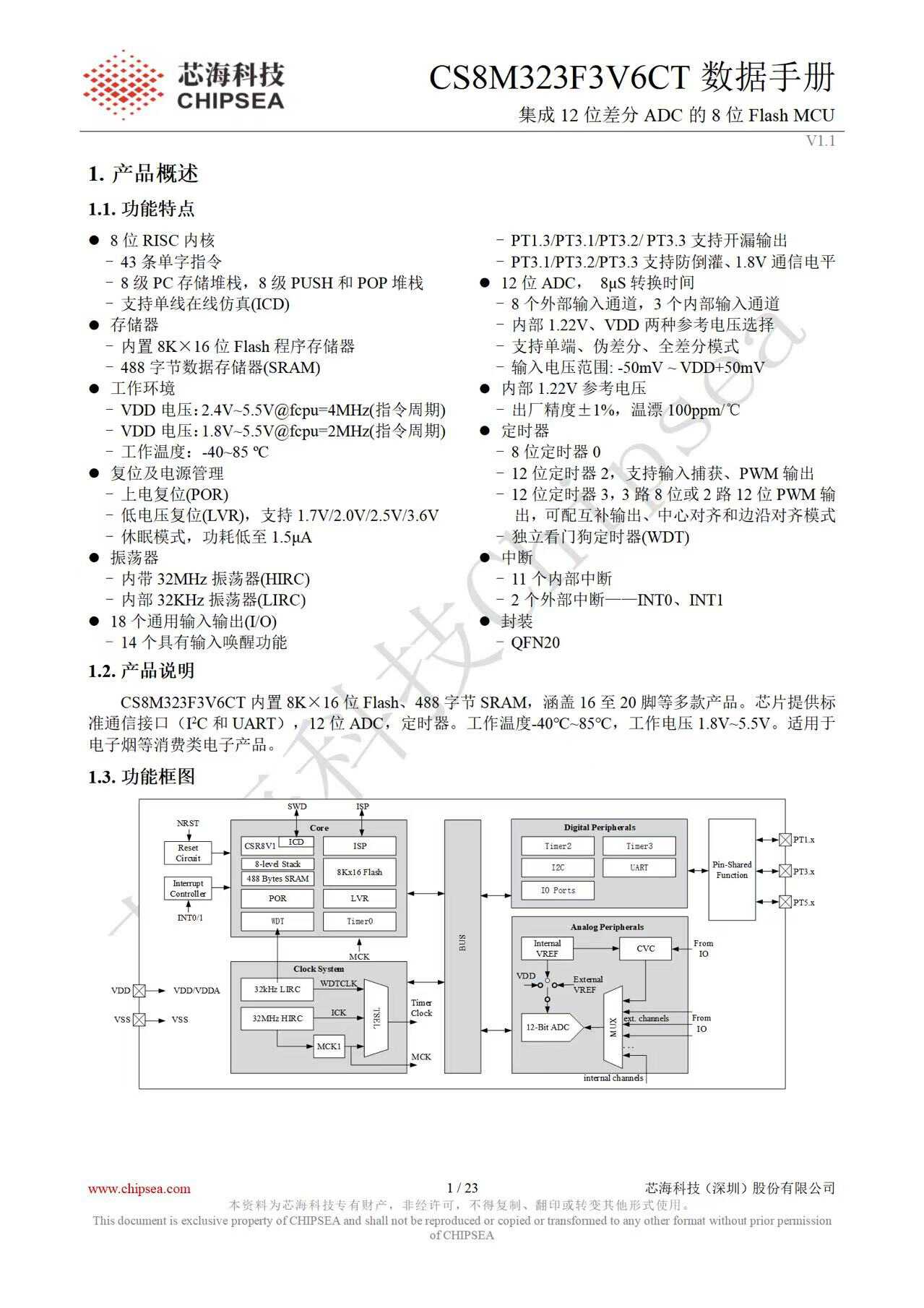
Here is the information about the CS8M32X series.
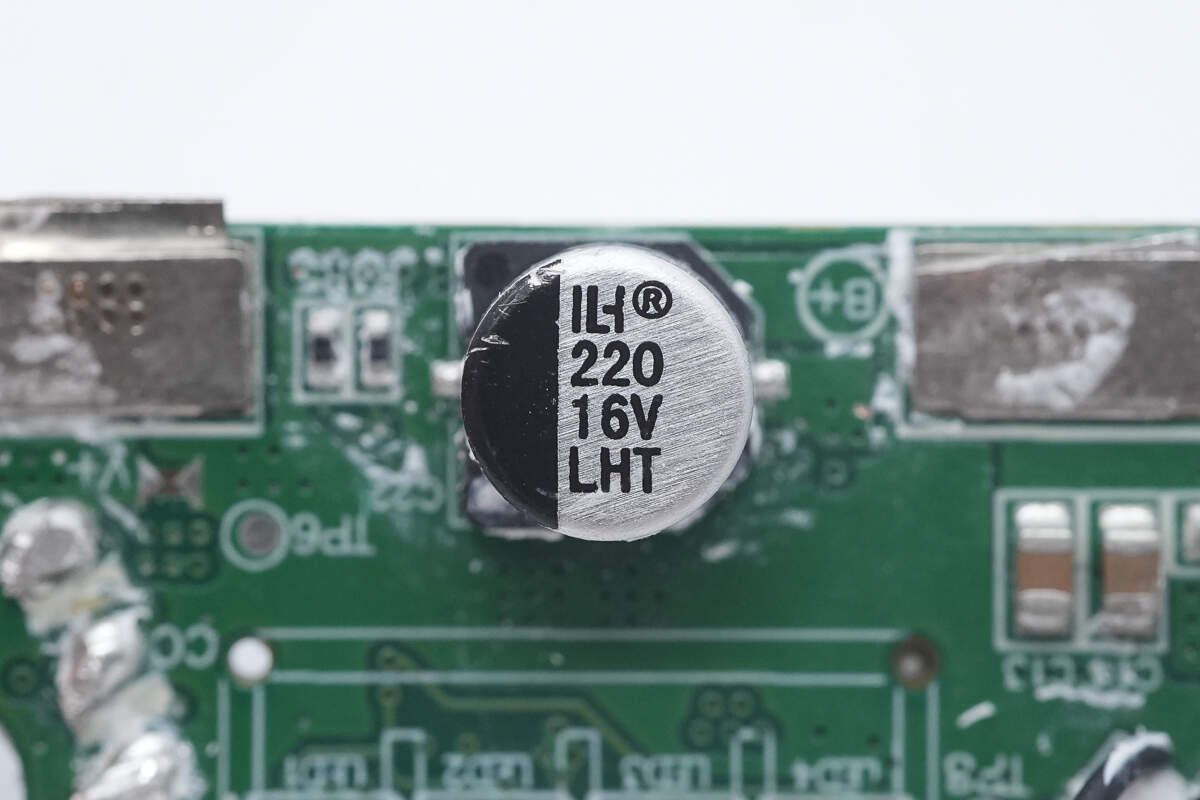
The electrolytic capacitor is from CHAOH. 16V 220μF.
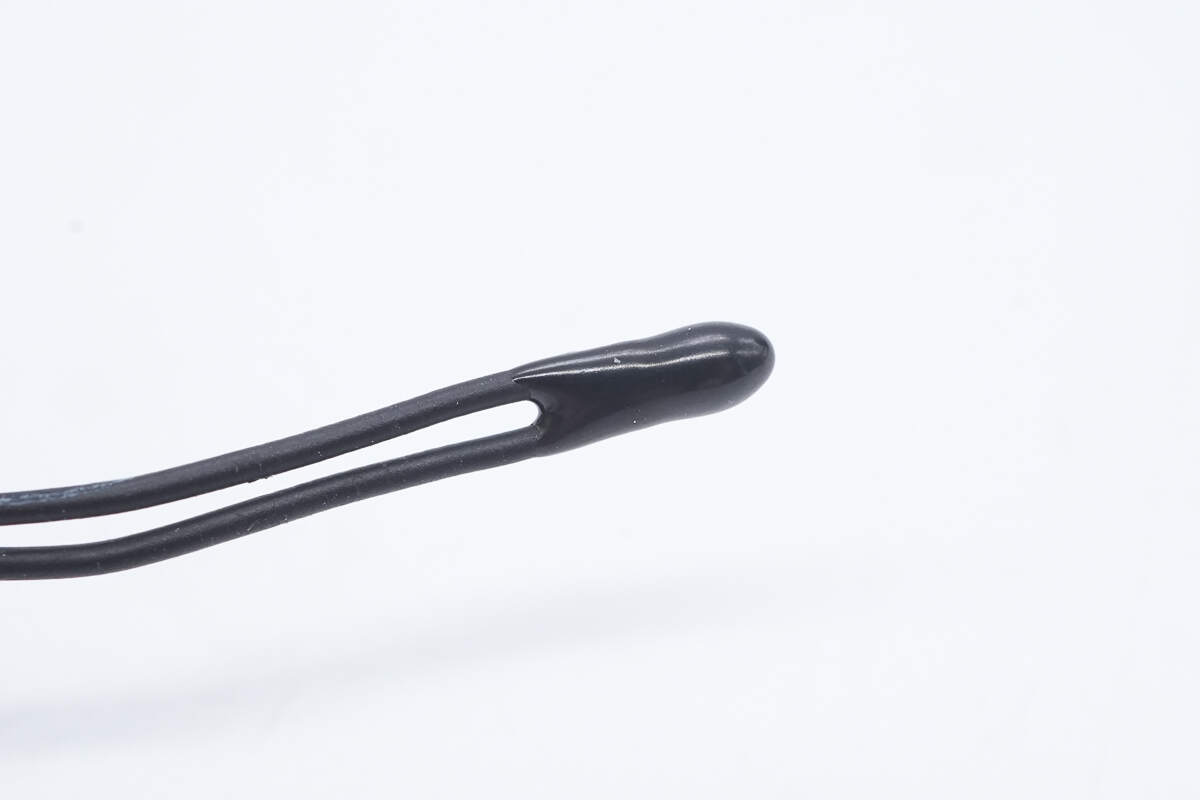
The thermistor is used for battery cell temperature monitoring.
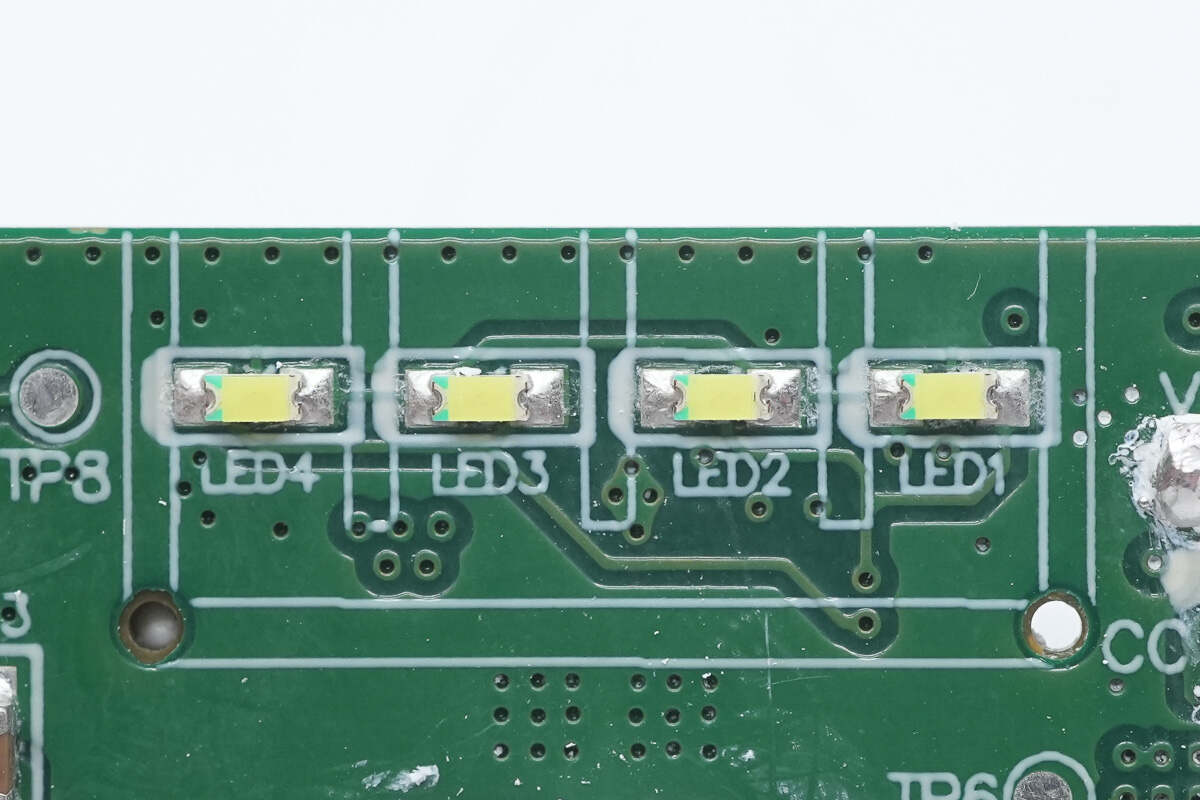
Close-up of the four LED power indicator lights.
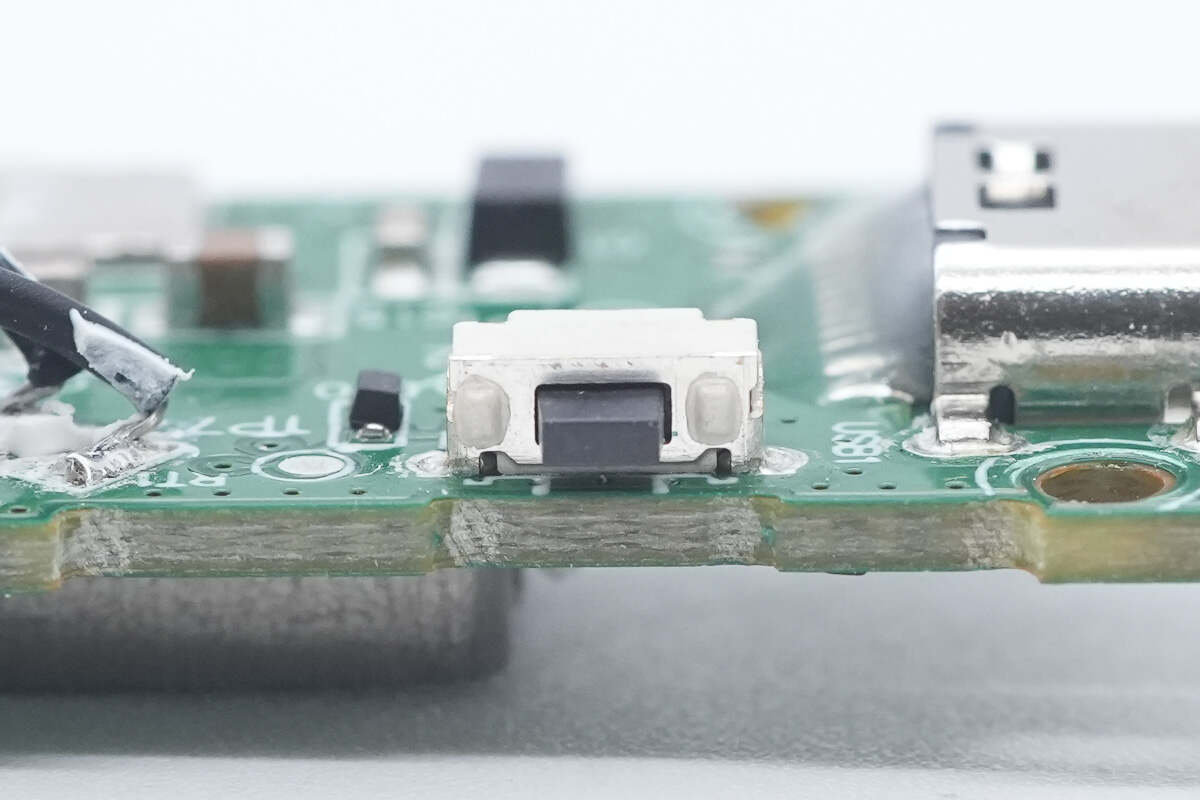
Close-up of the power button.
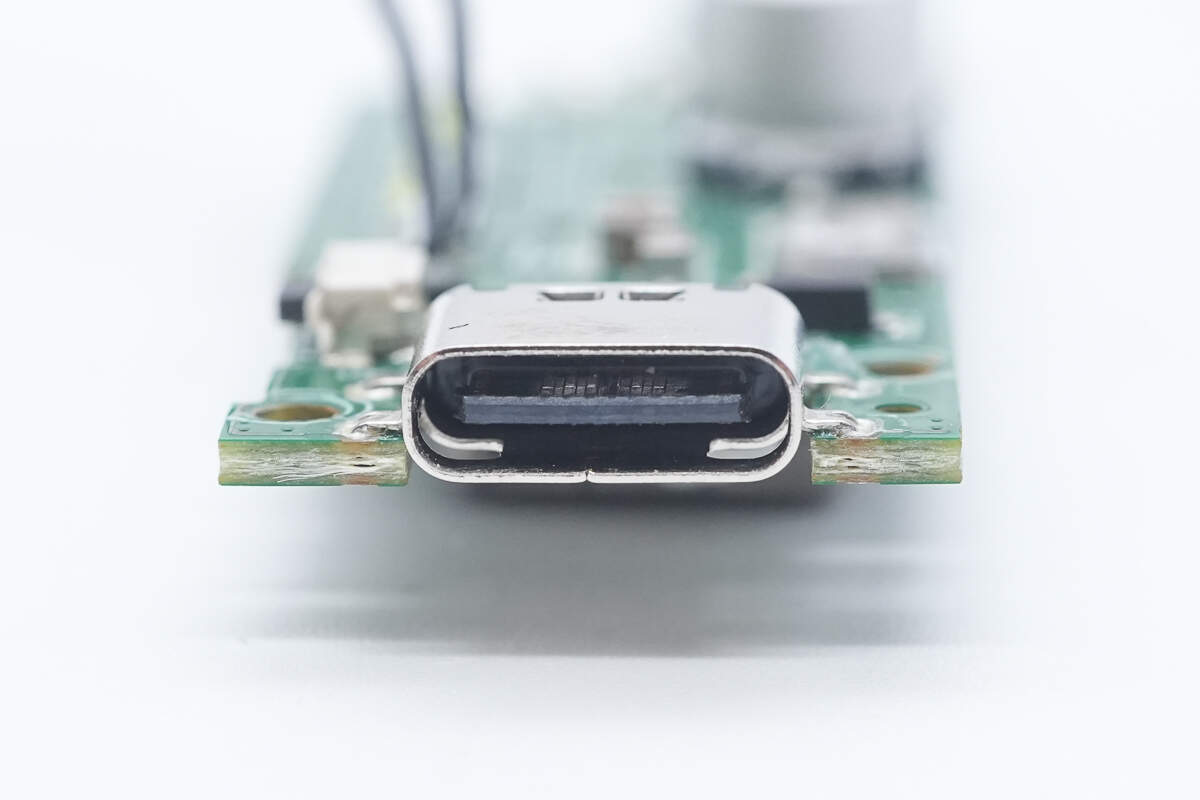
The USB-C socket is soldered using through-hole technology.
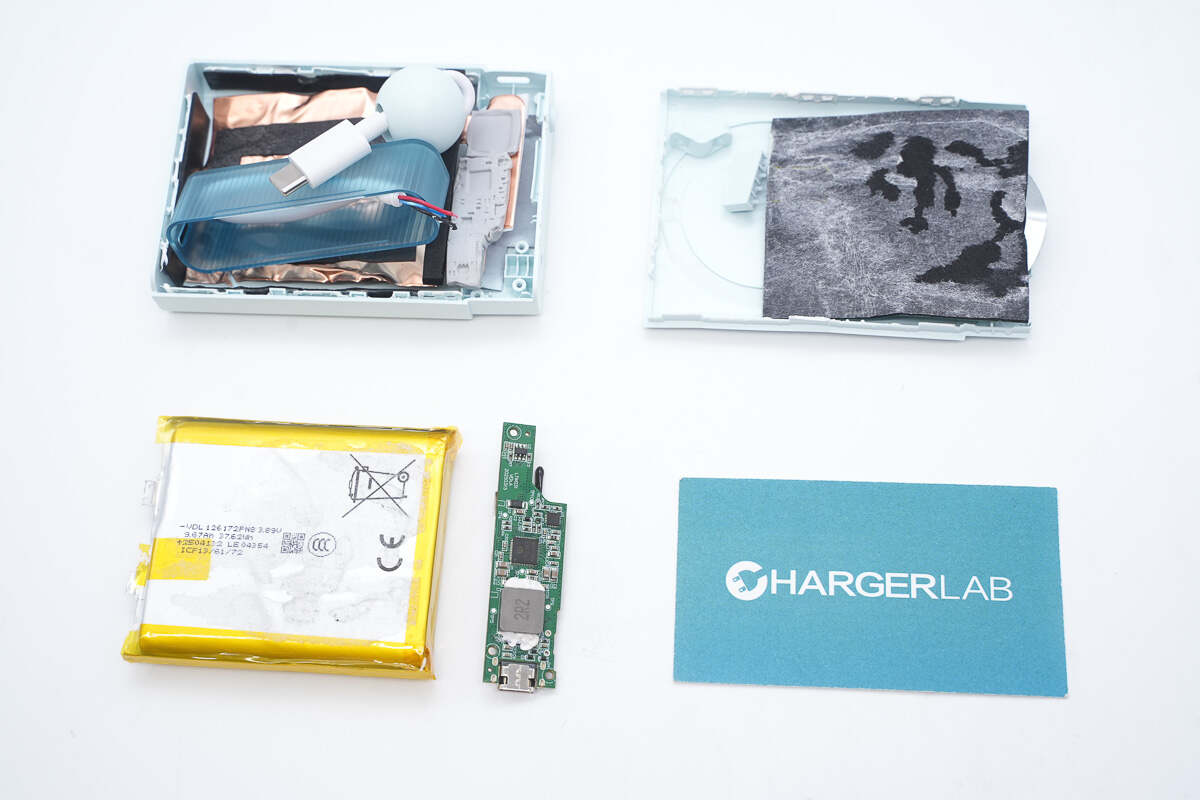
Well, those are all components of the OPPO 10000mAh 22.5W Energy Jelly Power Bank.
Summary of ChargerLAB
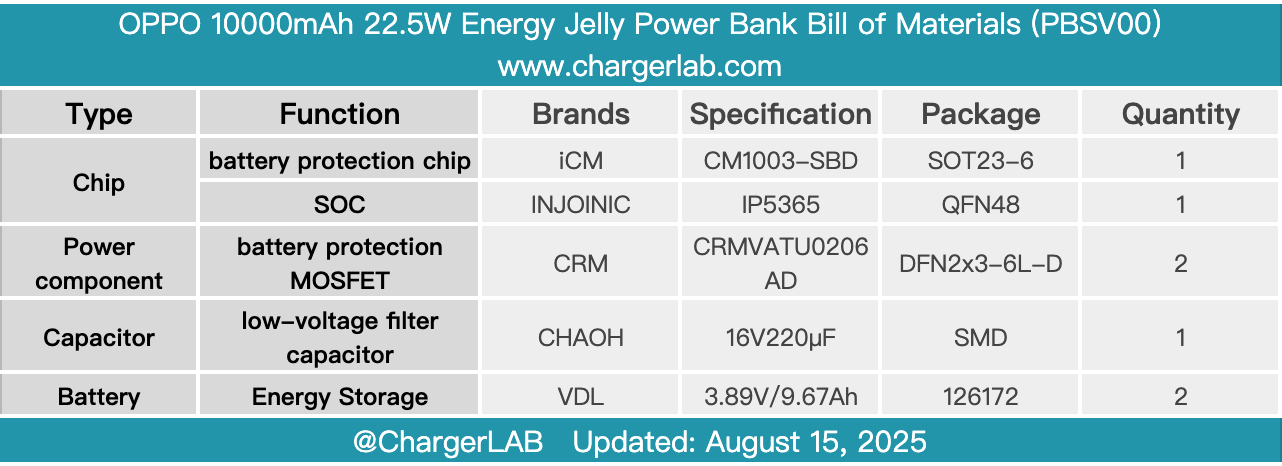
Here is the component list of the OPPO 10000mAh 22.5W Energy Jelly Power Bank for your convenience.
It features an attractive design and is equipped with a 10,000mAh battery cell, striking a balance between capacity and compact size. The built-in USB-C cable meets current market demands, and together with an additional USB-C port, it delivers up to 22.5W fast charging—sufficient for everyday charging needs.
It has passed CCC certification and features twelve layers of protection, including safeguards for battery temperature, overcharge, and overdischarge, ensuring reliable safety. It fully complies with international air transport standards and is allowed on high-speed trains and airplanes.
After taking it apart, we found that it contains a VDL polymer lithium battery, protected by the iCM CM1003-SBD chip and a thermistor. It is equipped with heat-dissipating copper foil and thermal pads to help cool the PCBA and battery cell. Screws are used for reinforcement, along with foam padding for shock absorption.
It uses the Injoinic IP5365 SoC, a highly capable chip that not only enables bidirectional fast charging via the built-in USB-C cable but also supports practical features such as battery temperature monitoring through a thermistor and real-time battery status feedback. Its high level of integration significantly simplifies circuit design and component count, enhancing both product reliability and manufacturing efficiency.
Related Articles:
1. Teardown of UGREEN Nexode Car Charger 90W with Retractable USB‑C Cable (EC603)
2. Teardown of Xiaomi 10000mAh 7.5W Magnetic Stand Power Bank (WPB1007Z)
3. Teardown of RayNeo Magic Box 2 for AR Glasses (XRAC-BOX02CN)

